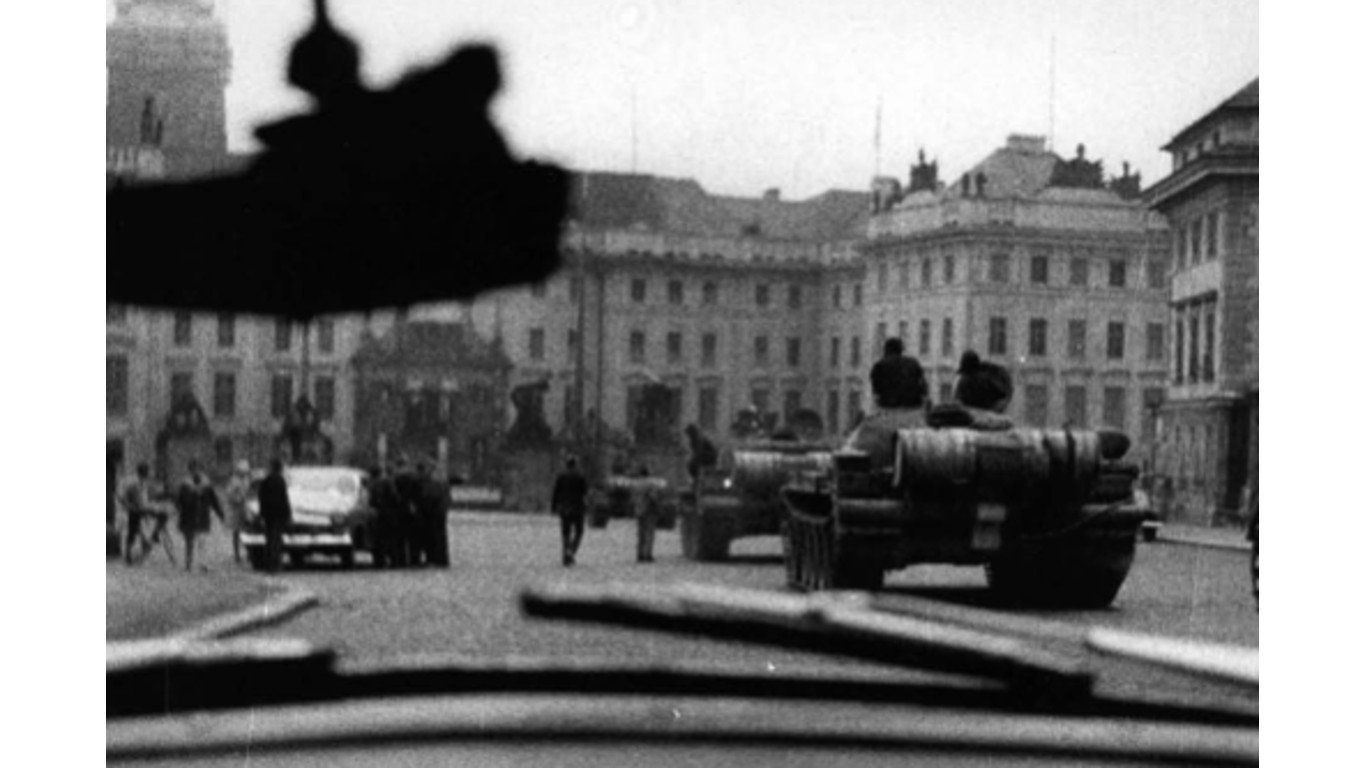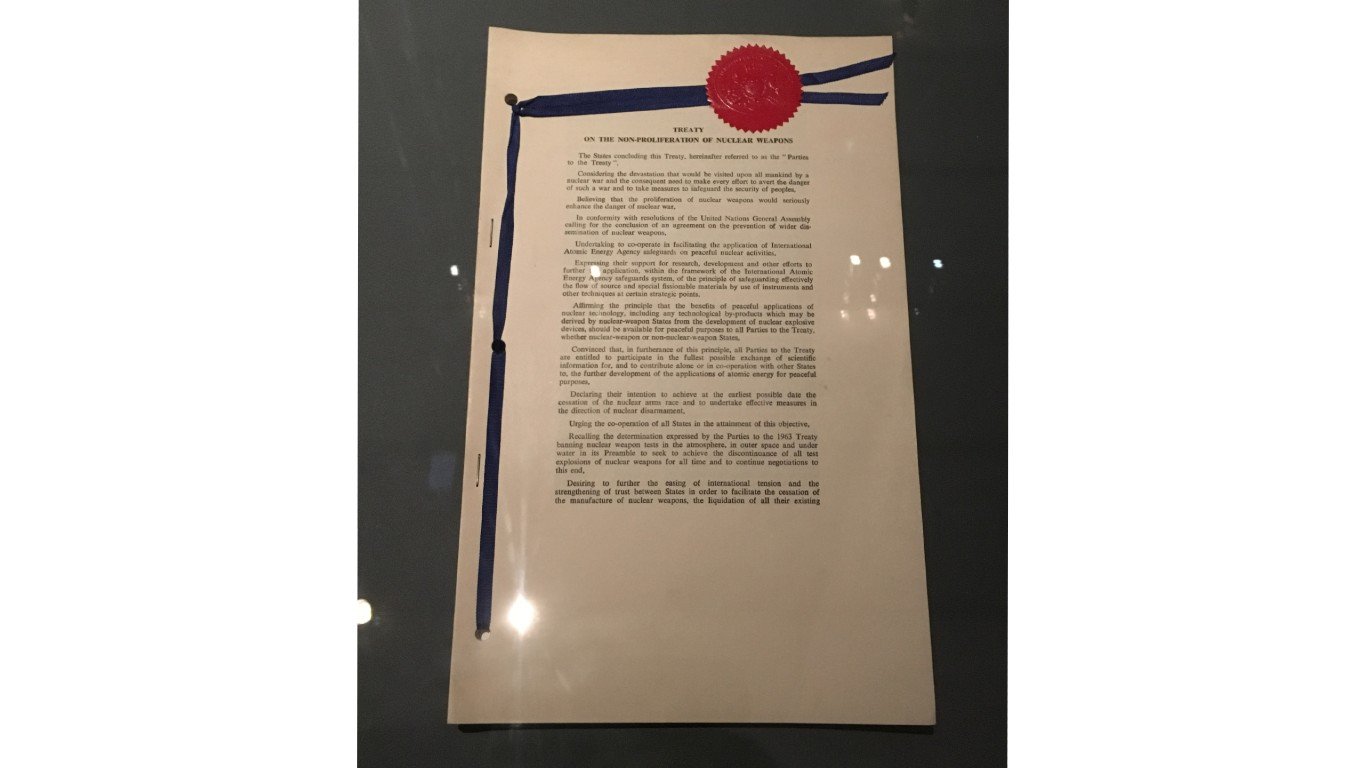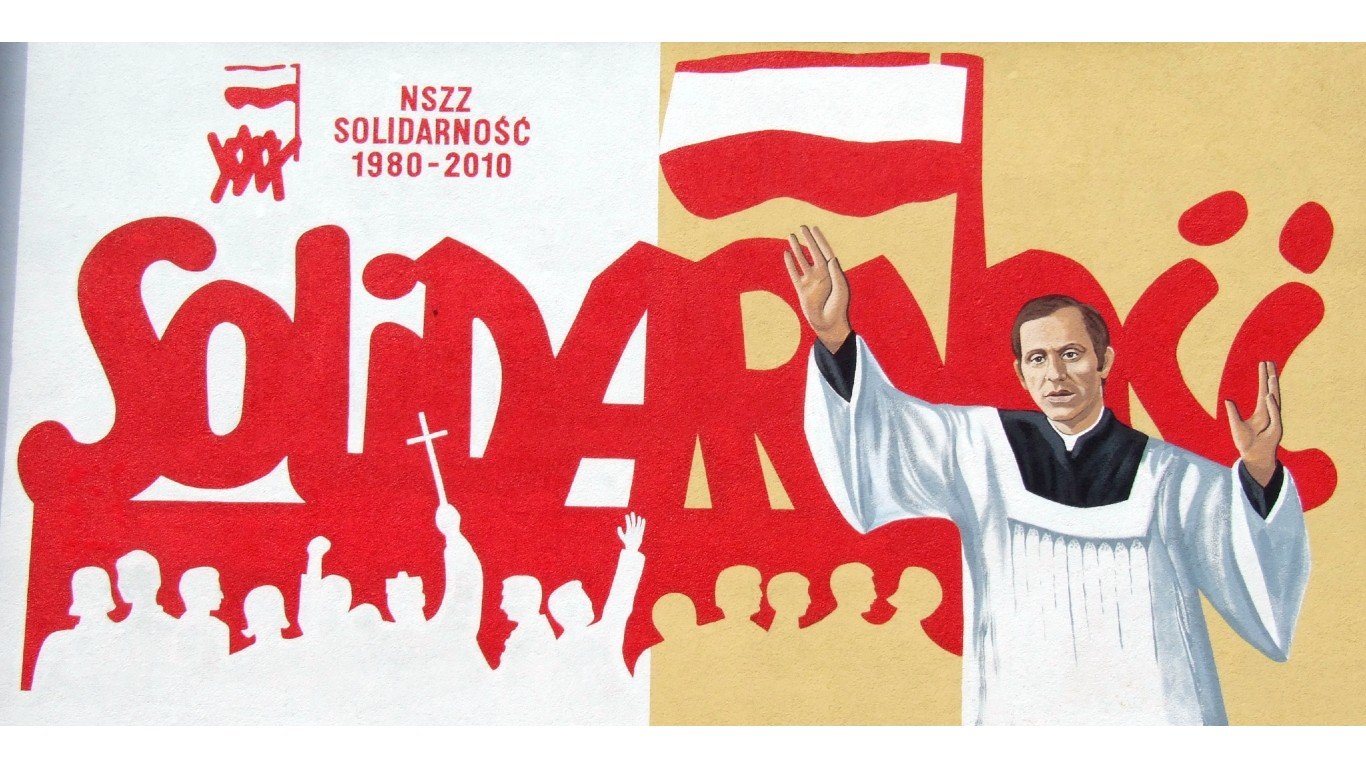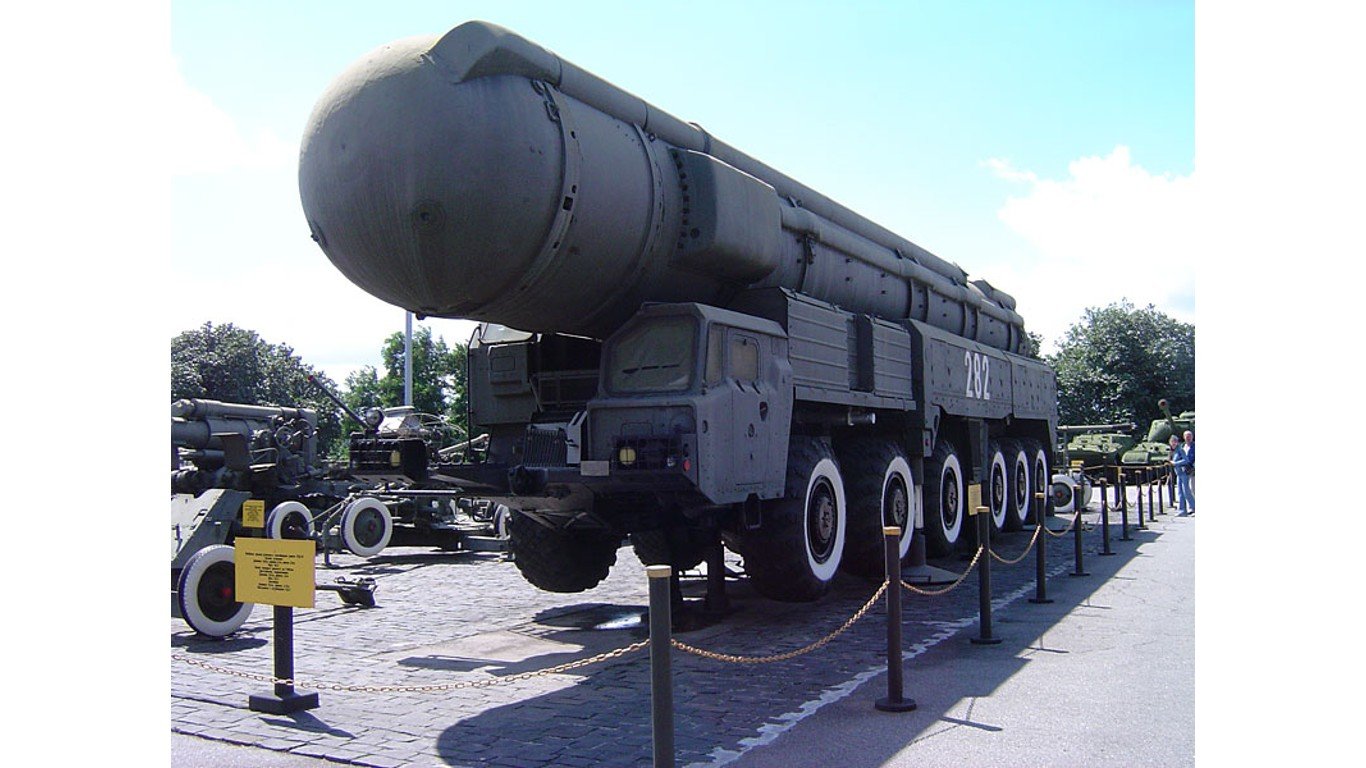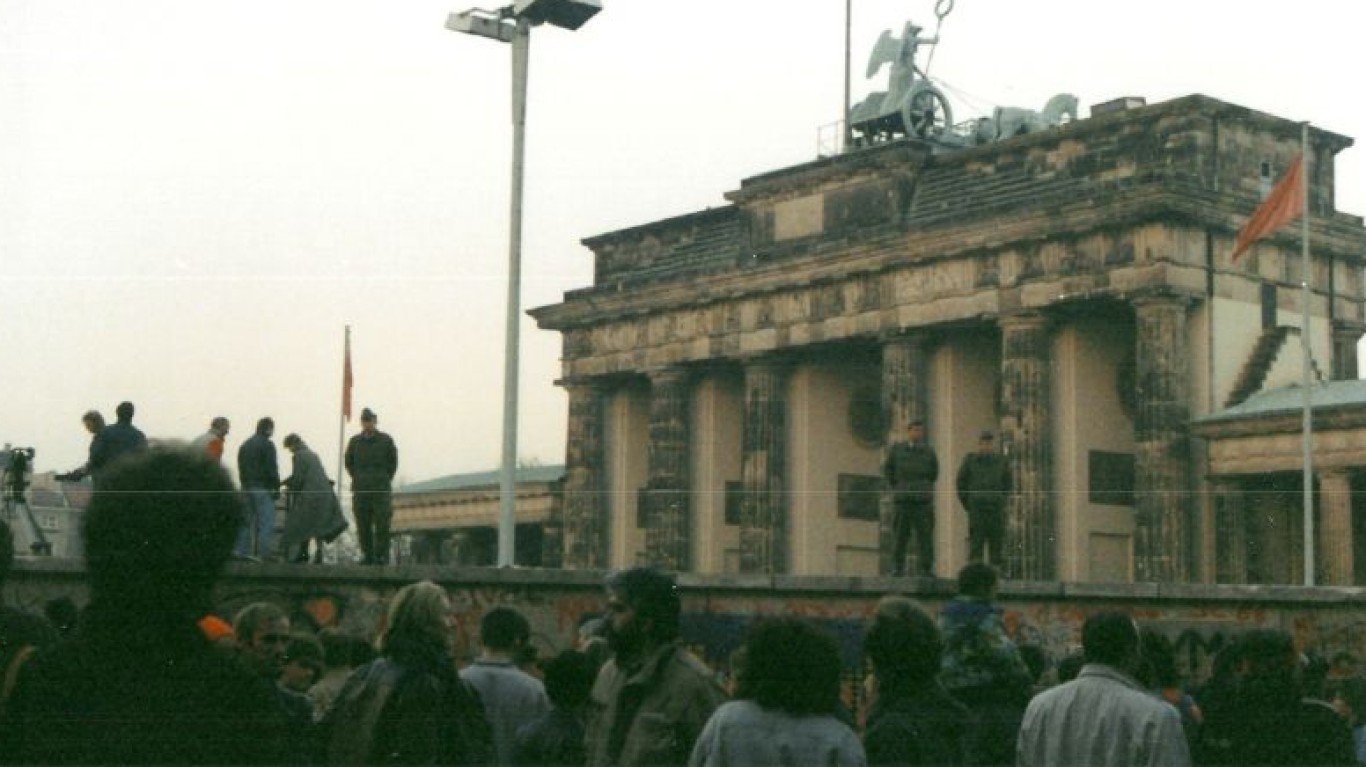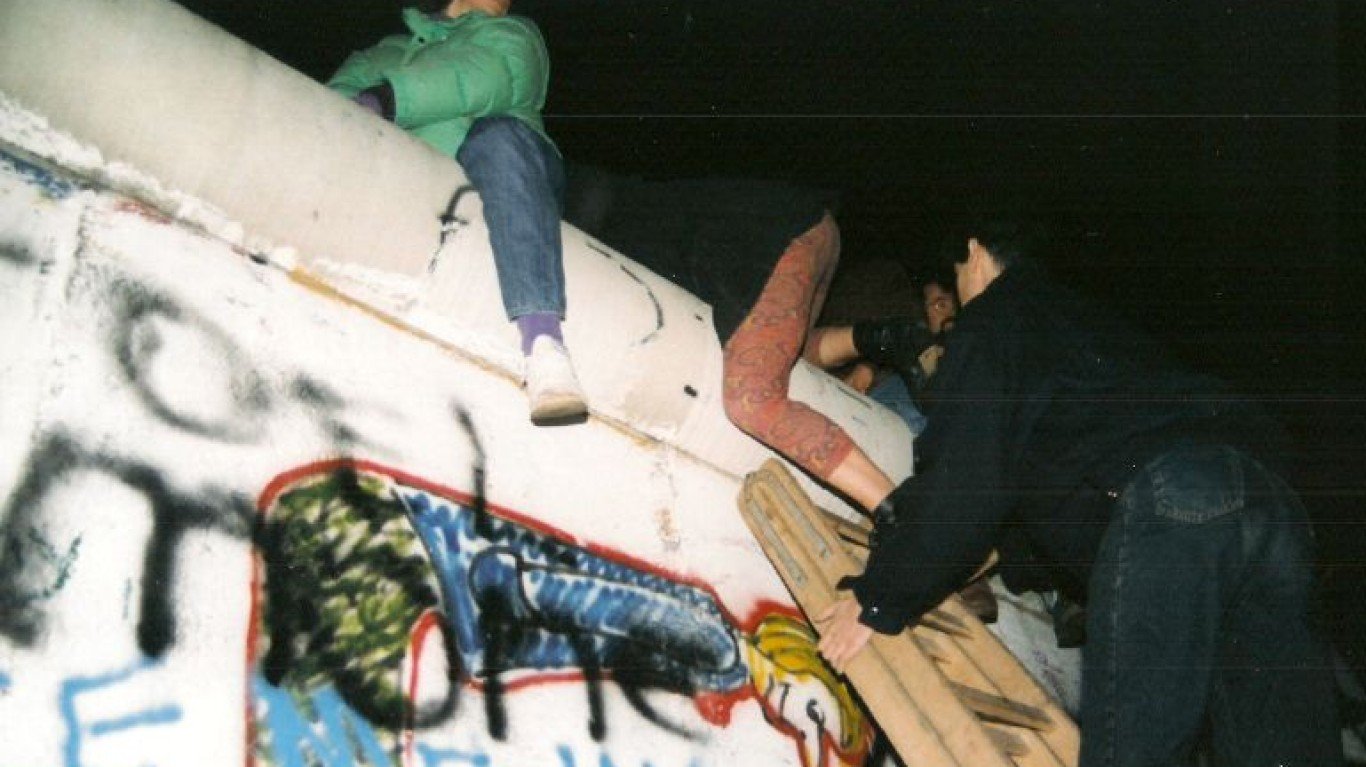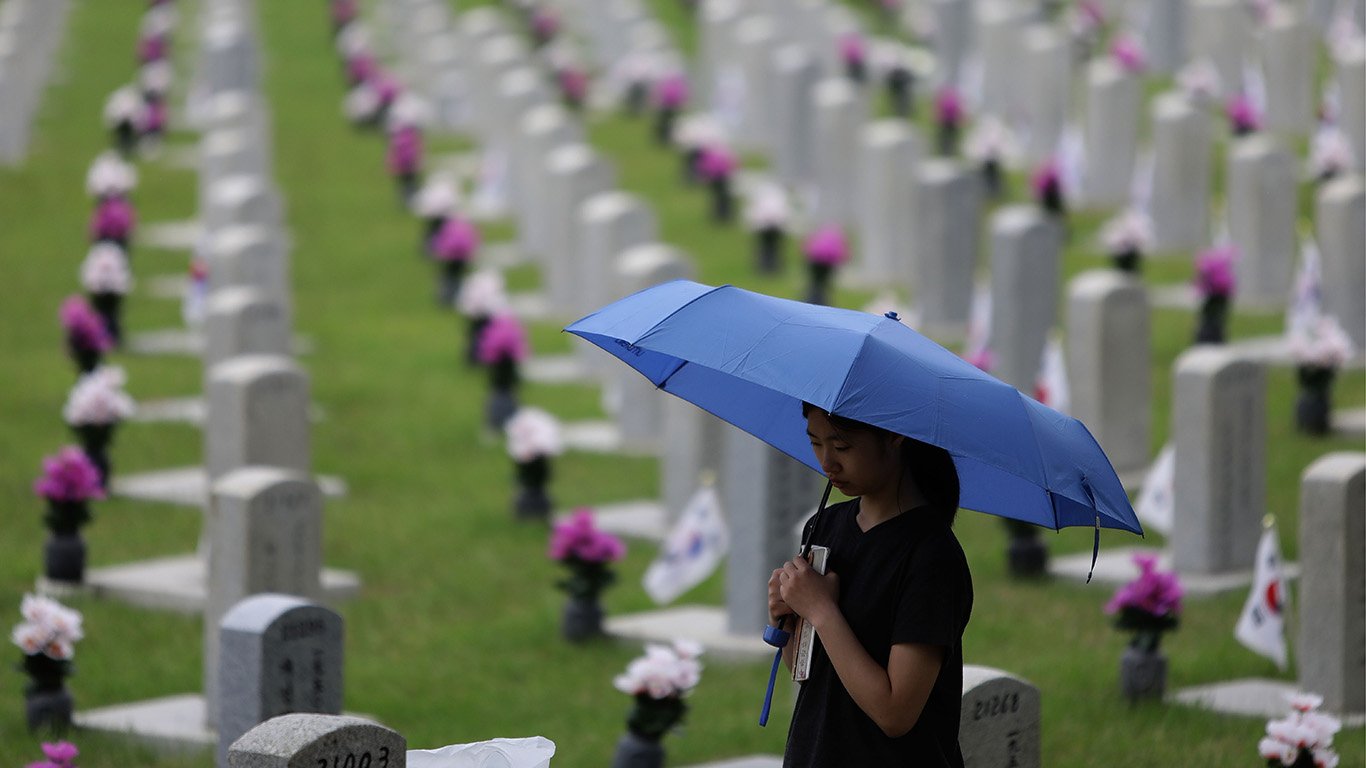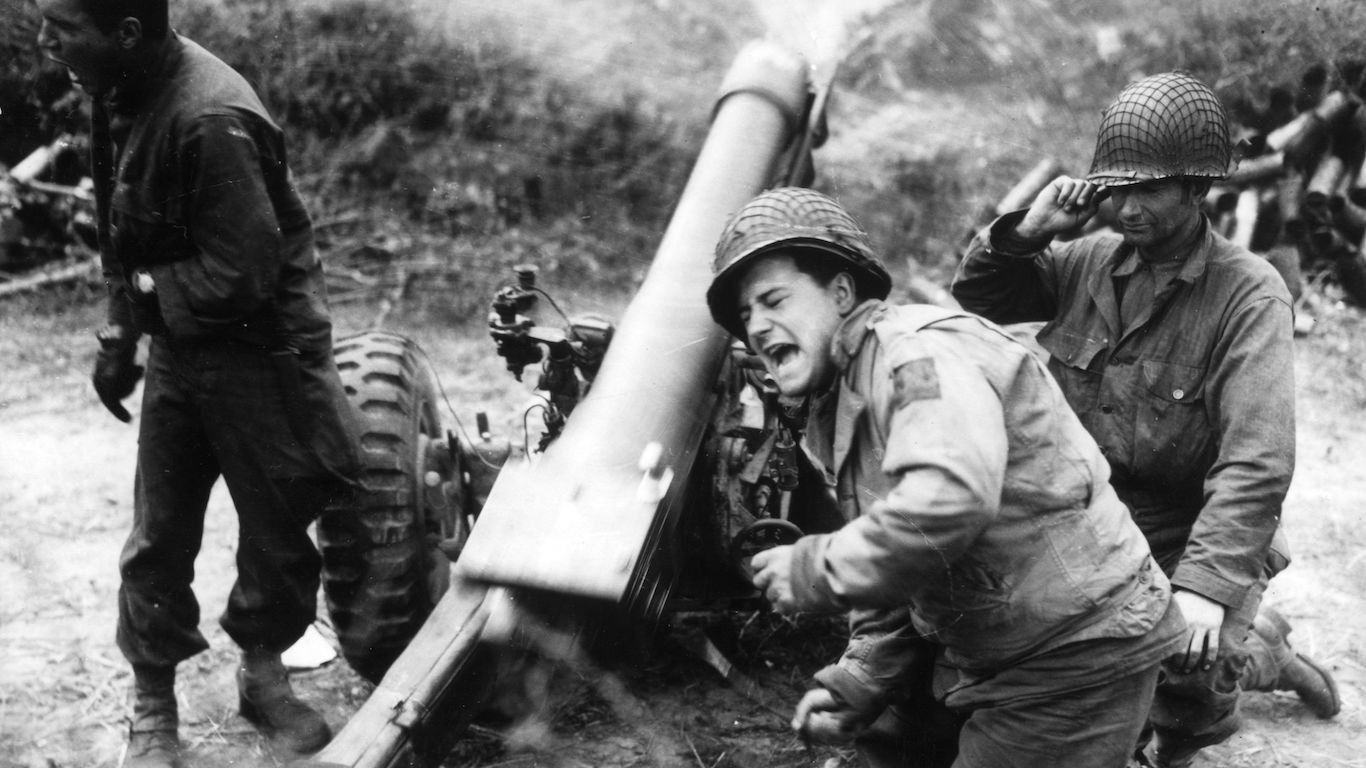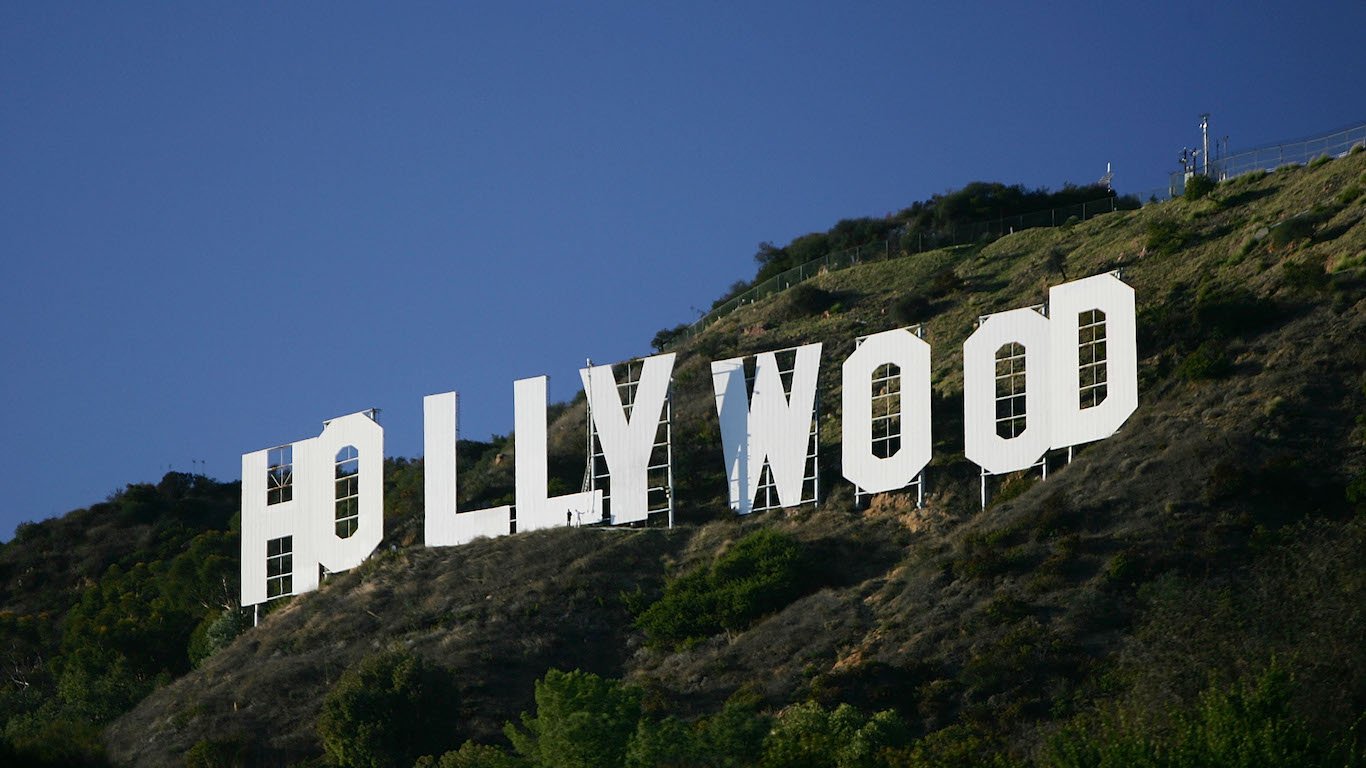

No sooner had World War II ended, then another conflict began. This was the Cold War – an ideological battle between the United States and the Soviet Union and its allies that would last roughly 45 years. (The term was apparently coined by George Orwell in a general sense in 1946 and first applied to the U.S.-Soviet rivalry the following year by the financier and statesman Bernard Baruch.) For much of its duration, the Cold War would be a low-boil struggle between the two superpowers, interrupted by several incidents that could have triggered an all-out nuclear war and the end of civilization.
To assemble a list of the most important events of the Cold War, 24/7 Tempo culled information from sources such as the websites of the National Archives, the FBI, the CIA, the National World War II Museum, NATO, and Britannica, as well as various media sources. We exercised editorial discretion in choosing what we believe to be the pivotal moments of the Cold War, from the end of World War II to the dissolution of the Soviet Union in 1991. (For conflicts that weren’t so “cold,” read how every war in American history ended.)
Even before the last shots of World War II were fired, tensions between the U.S. and its allies on one hand and the Soviet Union on the other were rising. The Soviets reneged on the promise of free elections in the Eastern European countries and instead embarked on a program of imposing communist governments on them. A divided Germany would be the locus of flashpoints culminating in the construction of the Berlin Wall in 1961.
All areas of international interaction became politicized – sports, culture, education, science, and of course national defense. For most of the Cold War period, the threat of nuclear annihilation hung over civilization. Both sides tried to avert catastrophe by better communications and a series of treaties limiting testing and weapons inventory. (Here are 25 misunderstandings that almost started nuclear war.)
Click here to read about the most important events of the Cold War
It became clear by the early 1980s that communism in Eastern Europe was a spent force. Decades earlier, U.S. foreign policy expert George Kennan had predicted the Soviet Union would collapse because of internal contradictions within its economic system. His prediction would be realized in 1991.
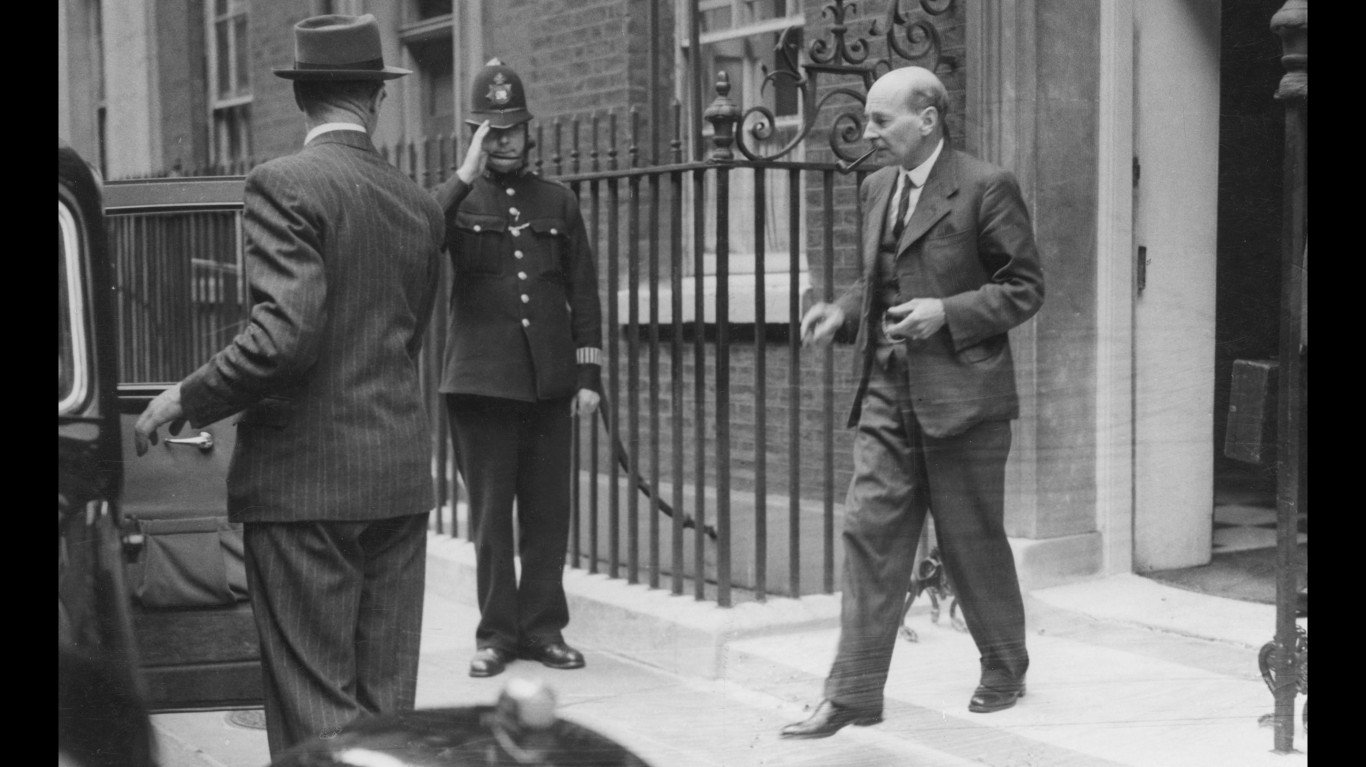
Potsdam Conference
> When: July 17-Aug. 2, 1945
> Where: Potsdam, Germany
The Potsdam Conference marked the final major summit of the Allies, held to negotiate terms for the end of World War II. Though the term “Cold War” had not yet been coined, the conference set the framework for post-war Europe, with the leaders of the United States, Soviet Union, and United Kingdom overseeing Germany’s demilitarization, denazification, and reparation payments, and heightened tensions between the participants, foreshadowing the conflicts to come. On July 26, the U.S., the U.K., and Chiang Kai-shek, who held the title of Chairman of China, issued the Potsdam Declaration, calling for Japan’s unconditional surrender – which came a month after the conference concluded.
[in-text-ad]
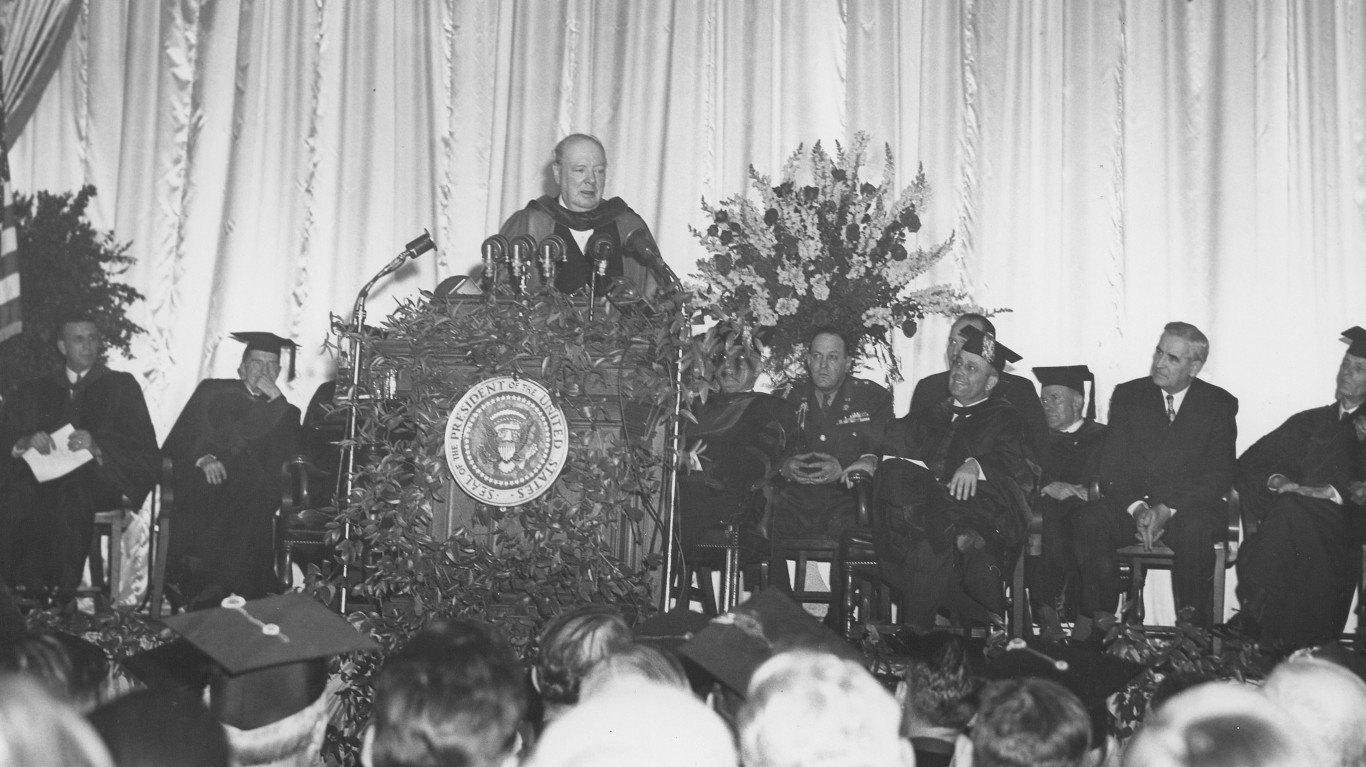
Winston Churchill’s ‘iron curtain’ speech
> When: March 5, 1946
> Where: Westminster College, Fulton, Missouri
Though the term had been used in other contexts earlier, Britain’s former prime minister Winston Churchill gave “iron curtain” its common meaning – as the defining metaphor for the division between the western democracies and the Eastern Bloc nations. “From Stettin in the Baltic, to Trieste in the Adriatic,” he said, “an iron curtain has descended across the [European] continent.” The speech was pivotal in defining the onset of the Cold War, with Churchill highlighting the political and ideological divide between the democratic West and the communist East, which ushered in a new era of geopolitical tensions and competition between the United States and the Soviet Union.
Further Soviet annexations
> When: 1946-1949
> Where: Eastern Europe
During World War II, the Soviet Union had annexed the Baltic states and parts of Poland, Finland, Romania, and other Eastern European and Central Asian countries, and after the war it brought Bulgaria, Poland, Hungary, Romania, the newly created German Democratic Republic (East Germany), and other nations in the region into its sphere of influence.
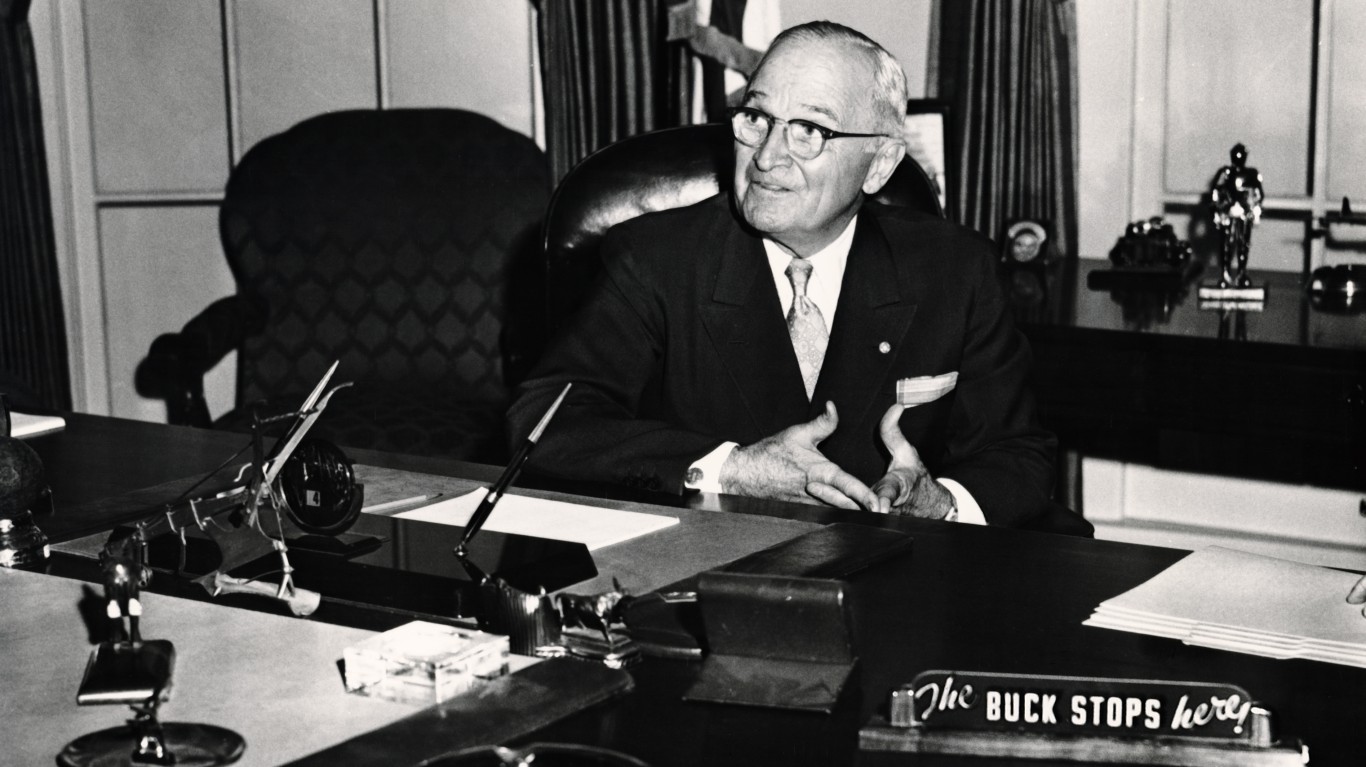
Announcement of the Truman Doctrine
> When: Mar. 12, 1948
> Where: Washington, D.C.
The Truman Doctrine, promulgated by President Harry Truman, marked a pivotal shift in U.S. foreign policy. It committed the U.S. to contain Soviet geopolitical expansion during the Cold War, providing economic and military aid to countries resisting communism, which significantly influenced global political dynamics.
[in-text-ad-2]
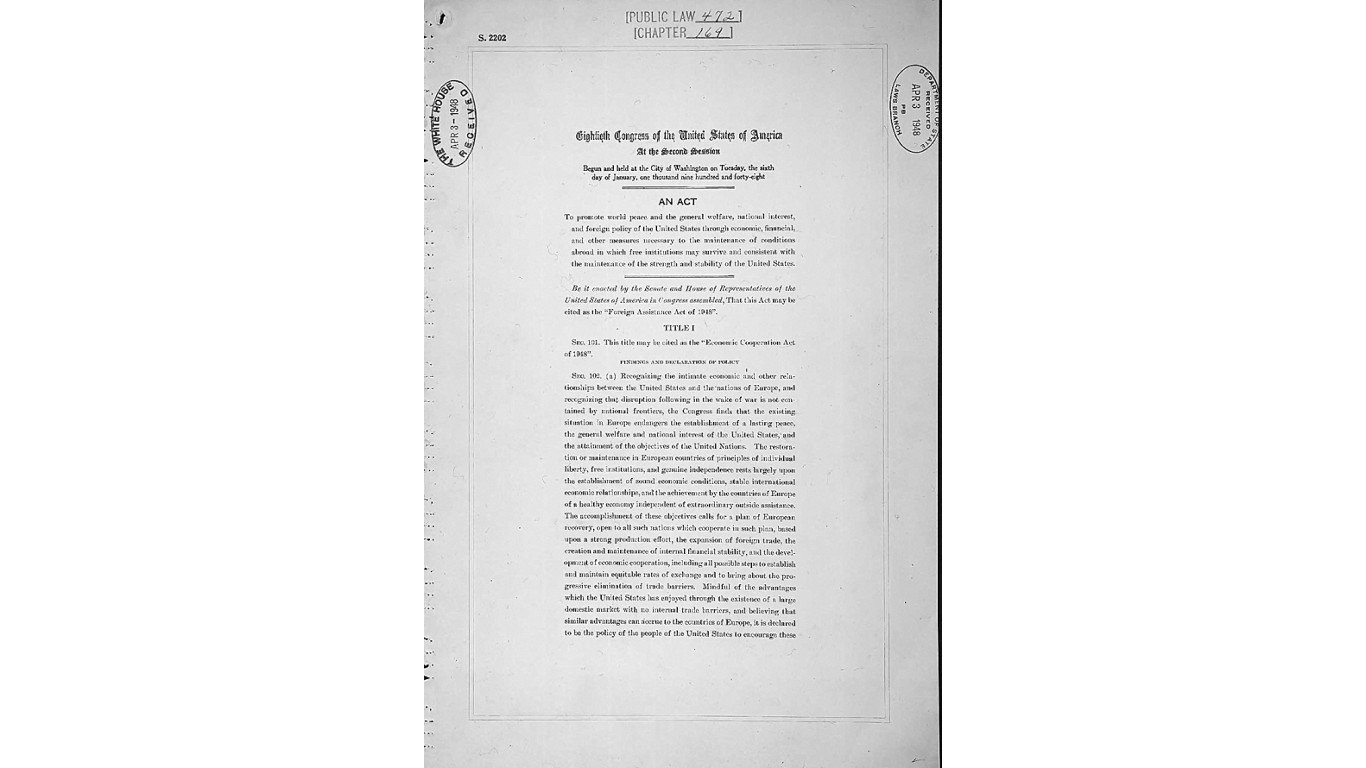
Announcement of the Marshall Plan
> When: Apr. 3, 1948
> Where: Washington, D.C.
The Marshall Plan, initiated in 1948, was a crucial U.S. program providing significant financial aid to rebuild European economies after WWII, aiming to prevent the spread of Soviet communism. This plan promoted Western economic recovery and political stability, indirectly contributing to Cold War tensions between the U.S. and the Soviet Union.
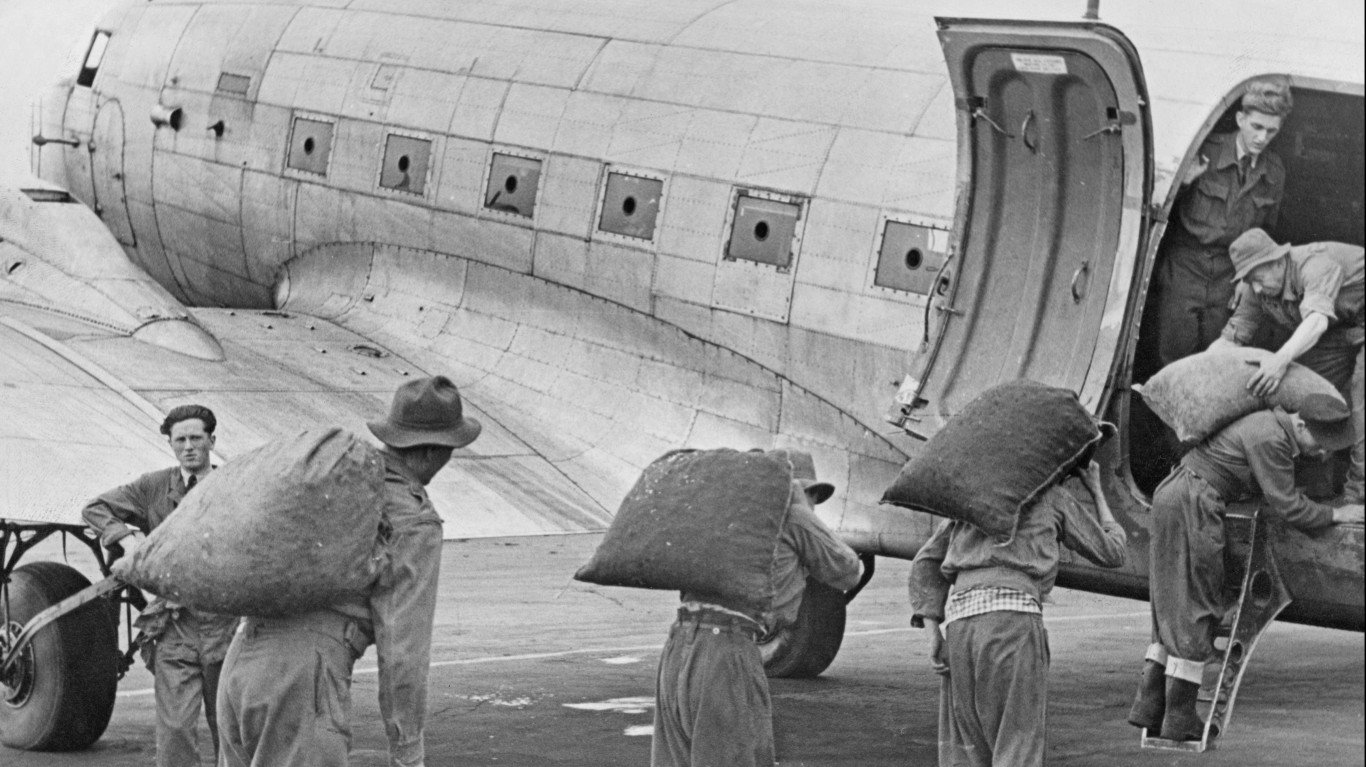
Berlin Blockade
> When: June 24, 1948 – May 12, 1949
> Where: Berlin, Germany
Immediately following the defeat of Germany, Berlin had been divided into zones under the respective control of the U.S.S.R., the U.S., France, and England, with the latter three constituting what came to be known as West Berlin. In the Berlin Blockade, the Soviets blocked ground and water access to the western part of the city, prompting the Western Allies to organize the Berlin Airlift, a massive operation that supplied their portion of the city with essential goods by air. The airlift demonstrated the commitment of the Allies to maintaining their presence in Berlin and resist Soviet pressure.
[in-text-ad]
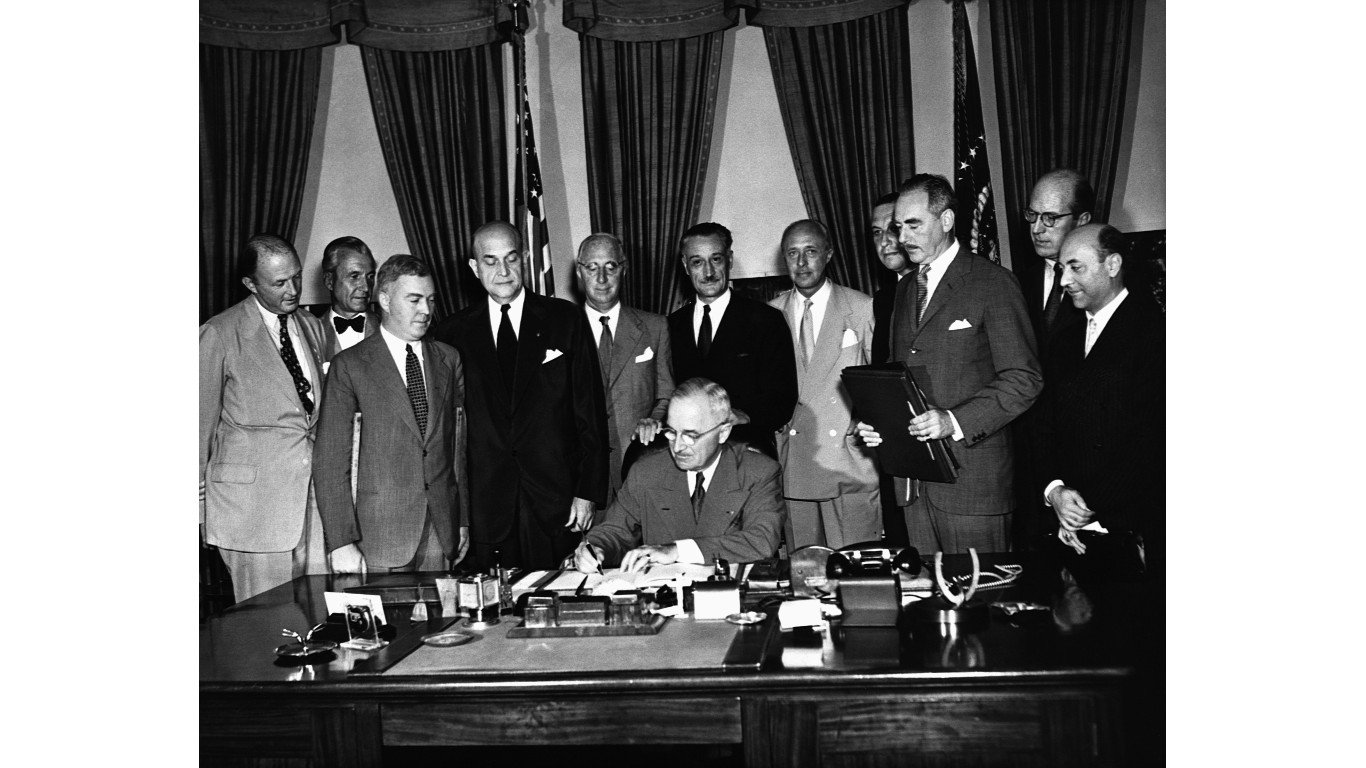
Creation of NATO
> When: Apr. 4, 1949
> Where: Europe
NATO, the North Atlantic Treaty Organization, was formed to maintain security during the Cold War. It united the U.S. and Europe in a collective defense pact, pledging mutual support against potential Soviet aggression, thereby playing a crucial role in maintaining the balance of power in the global political landscape.
Detonation of first Soviet atomic bomb
> When: Aug. 29, 1949
> Where: Semipalatinsk, Kazakhstan
The Soviet Union’s first atomic bomb test in the Central Asian republic of Kazakhstan – four years after the Americans had dropped A-bombs on Hiroshima and Nagasaki in Japan – signaled the end of the U.S. monopoly on nuclear weapons. This event inaugurated the nuclear arms race, a major component of Cold War tensions.
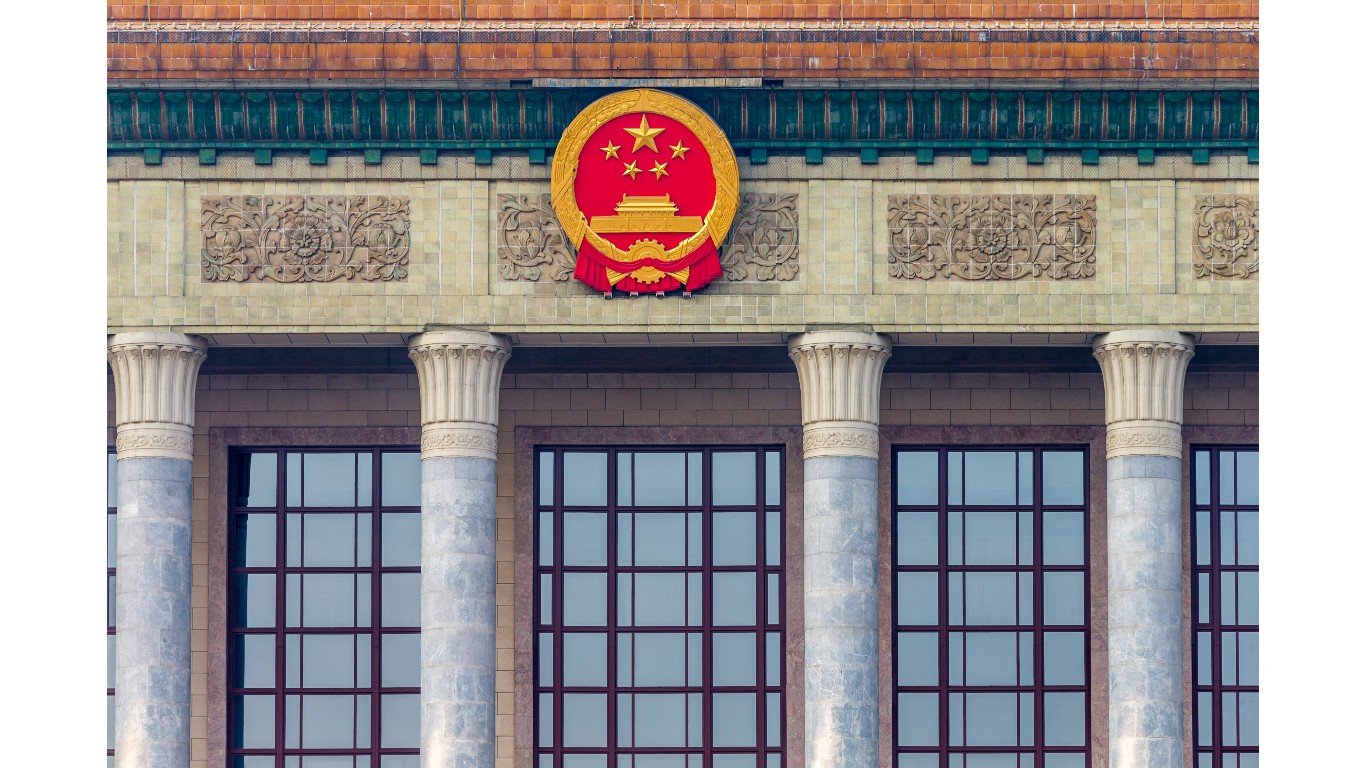
Communists takeover of China
> When: Oct. 1, 1949
> Where: China
The communist takeover of China significantly reshaped global politics. It established the People’s Republic of China, bolstered by Soviet support, as an influential force in Cold War ideological struggles. This shift also complicated U.S.-China relations, initiating decades of tension and frequent confrontations that continue to this day.
[in-text-ad-2]
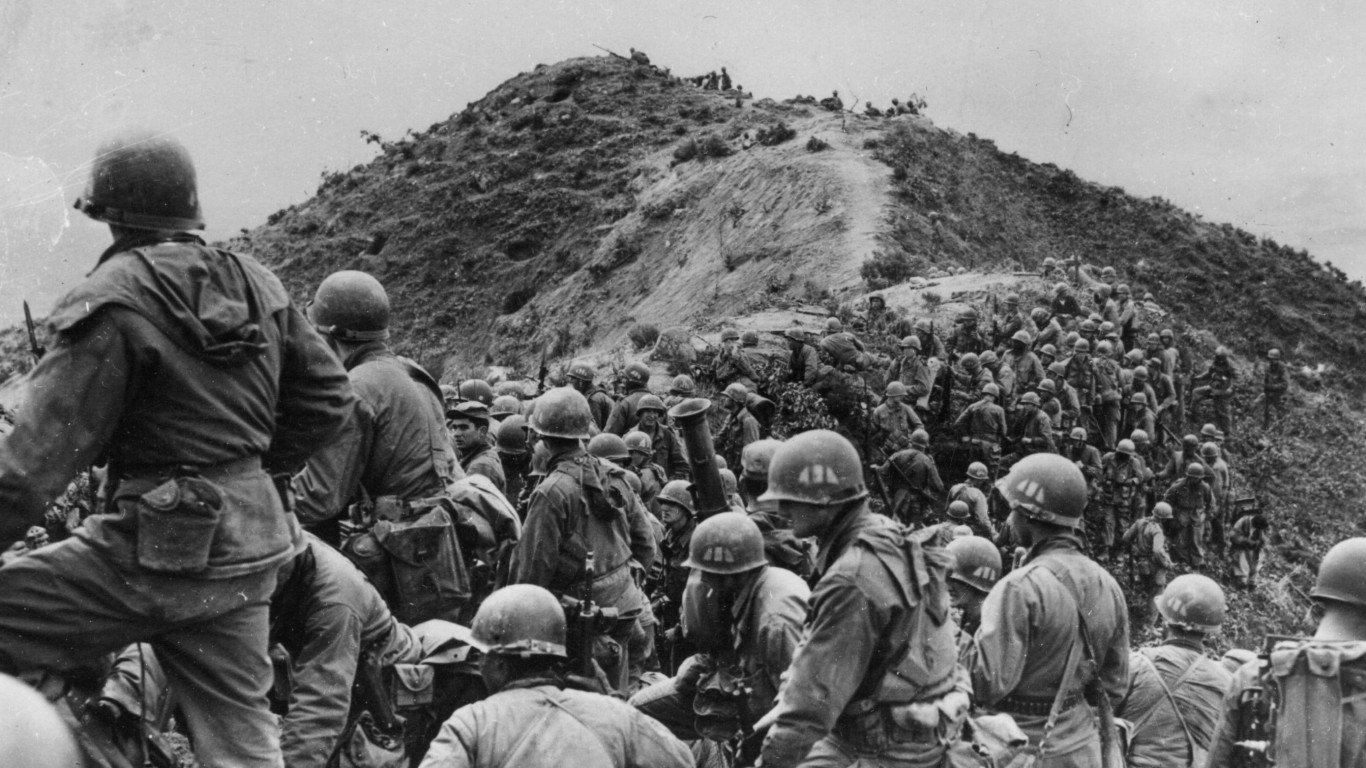
Communist invasion of South Korea
> When: June 25, 1950
> Where: Korean peninsula
The communist Northern Korea People’s Army invasion of South Korea marked the start of the Korean War, which highlighted the escalating tensions between the Soviet-backed North and the U.S.-backed South, setting the stage for major international conflict and the enduring division of the Korean peninsula.
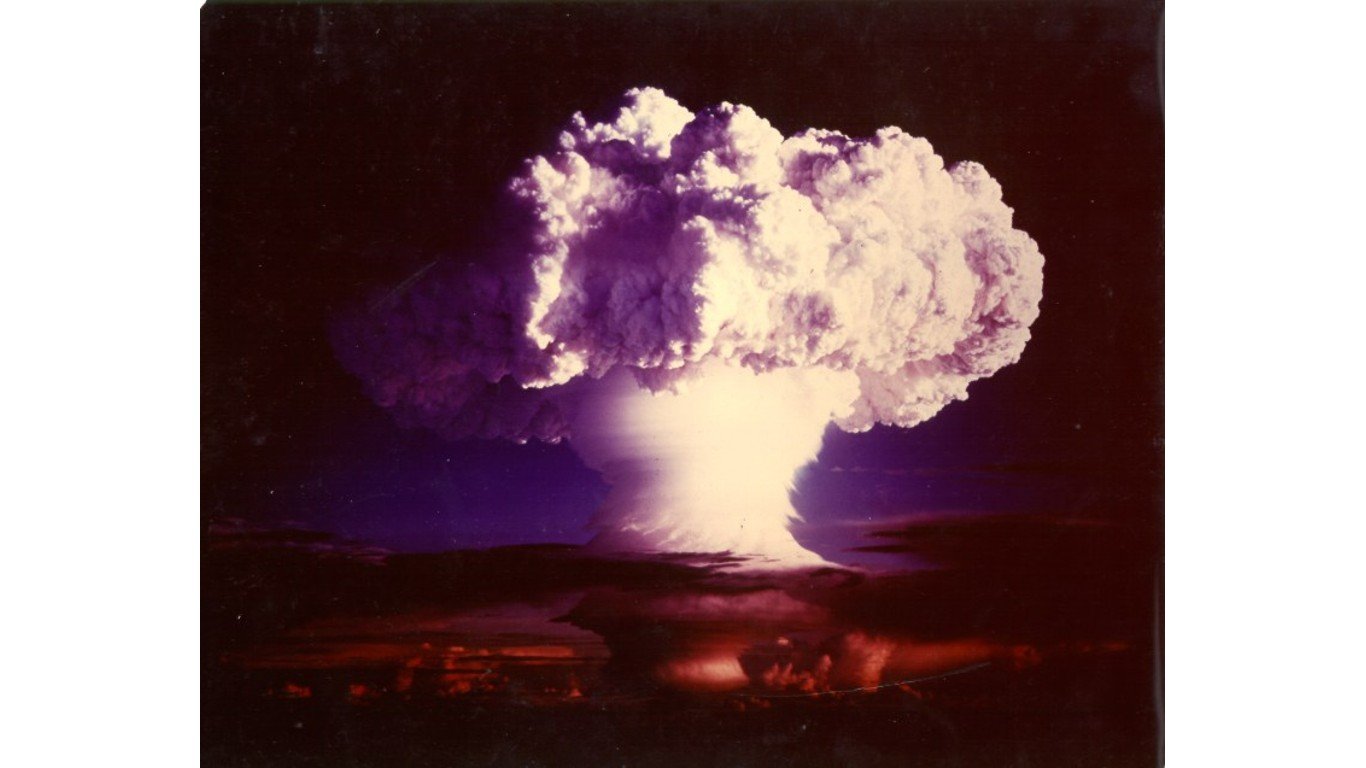
Detonation of first hydrogen bomb
> When: Nov. 1, 1952
> Where: Eniwetok Atoll, Marshall Islands
The U.S. detonation of the first hydrogen bomb marked a significant escalation of the nuclear arms race. This event intensified the standoff with the Soviet Union, as it demonstrated America’s advanced nuclear capabilities and sparked a fierce competition in nuclear technology development between the two superpowers.
[in-text-ad]
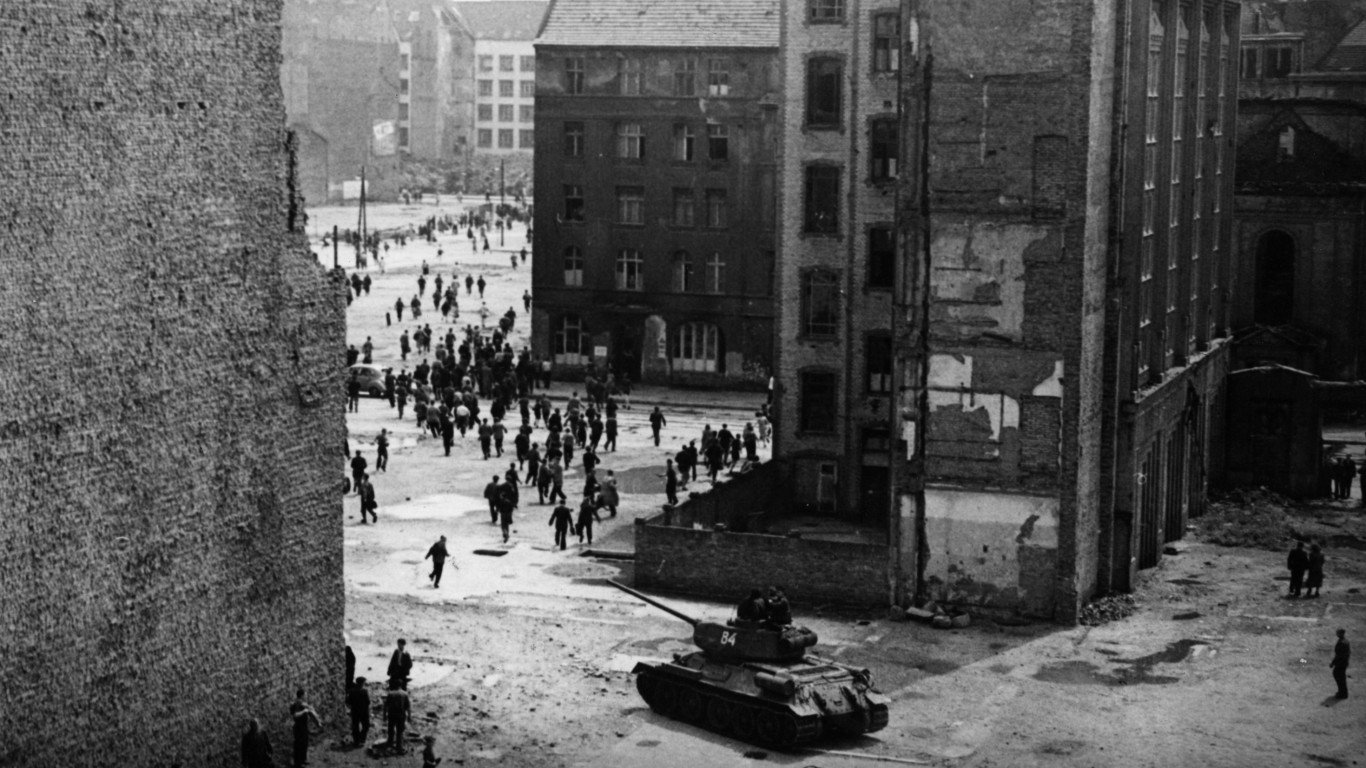
East Berlin uprising
> When: June 16-17, 1953
> Where: East Berlin
The East Berlin uprising highlighted the tension between the U.S.-backed Western Europe and the Soviet-controlled Eastern Europe. The revolt, brutally suppressed by the Soviet Union, underscored deep-seated dissatisfaction among East Germans with communist rule, indirectly prompting both superpowers to reinforce their commitment to their respective German states.
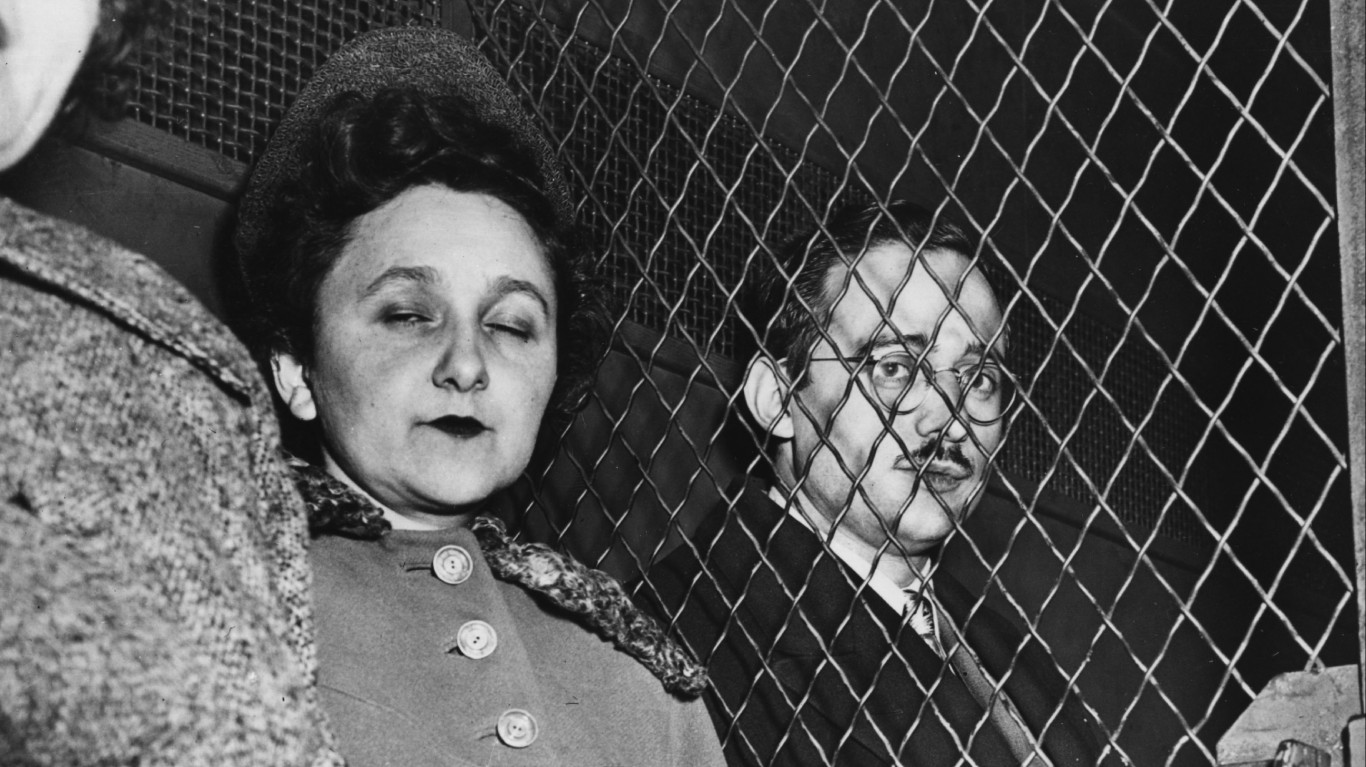
Execution of Julius and Ethel Rosenberg
> When: June 19, 1953
> Where: New York
The electrocutions of Julius and Ethel Rosenberg – accused of passing atomic bomb secrets to the Soviet Union – marked the only time American spies were executed during the Cold War. Their case stirred global controversy around espionage, national security, and justice, intensifying U.S.-Soviet tensions and profoundly impacting public perception of the Cold War.
Detonation of first Soviet hydrogen bomb
> When: Nov. 22, 1955
> Where: Soviet Union
The Soviet Union’s first hydrogen bomb detonation, three years after the first American H-bomb was tested, marked another turning point in the Cold War – ramping up an intensifying arms race between the Soviet Union and the United States.
[in-text-ad-2]
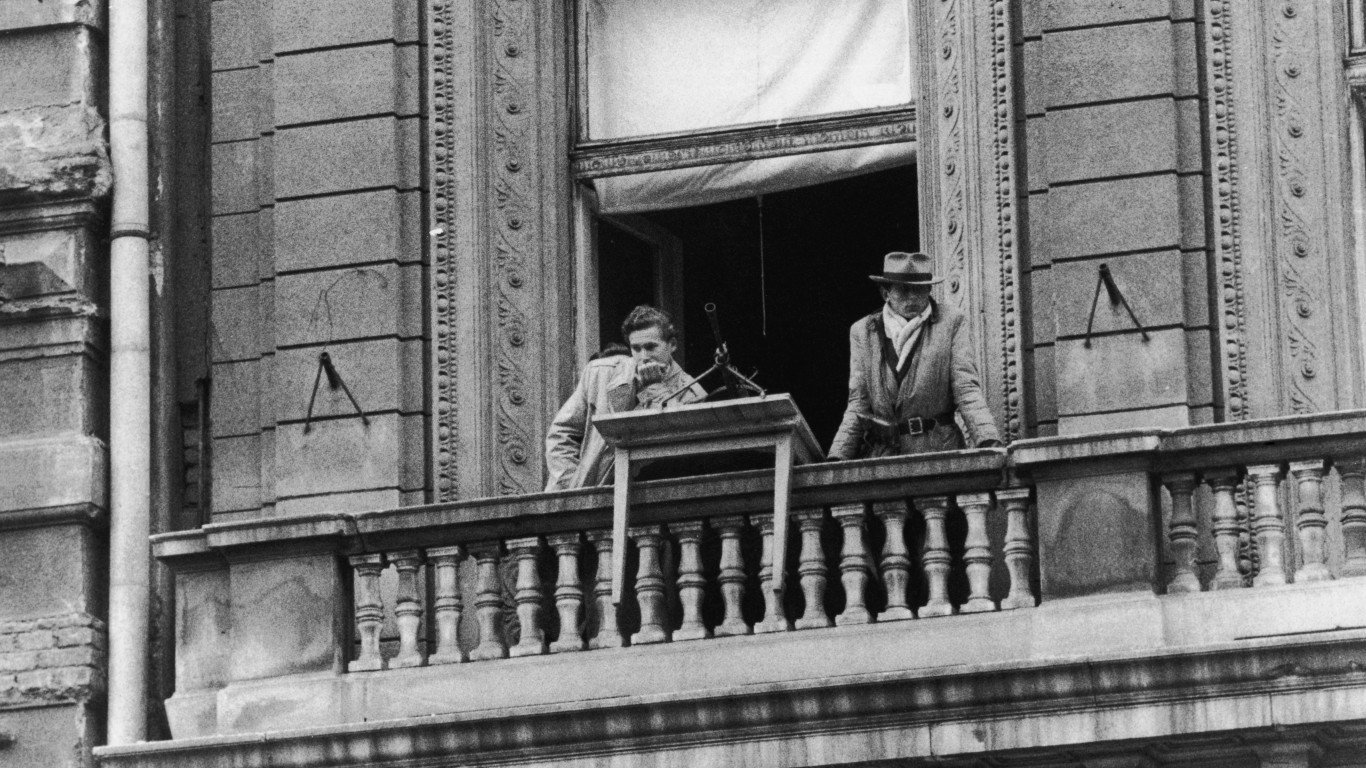
Hungarian Revolution
> When: Oct. 23-Nov. 4, 1956
> Where: Hungary
The Hungarian Revolution was a vivid demonstration of widespread resistance to Soviet control in Eastern Europe. The U.S.’s non-intervention highlighted the limits of the Truman Doctrine, while the U.S.S.R.’s forceful response to liberalization in Eastern Europe affirmed its commitment to maintaining its sphere of influence.
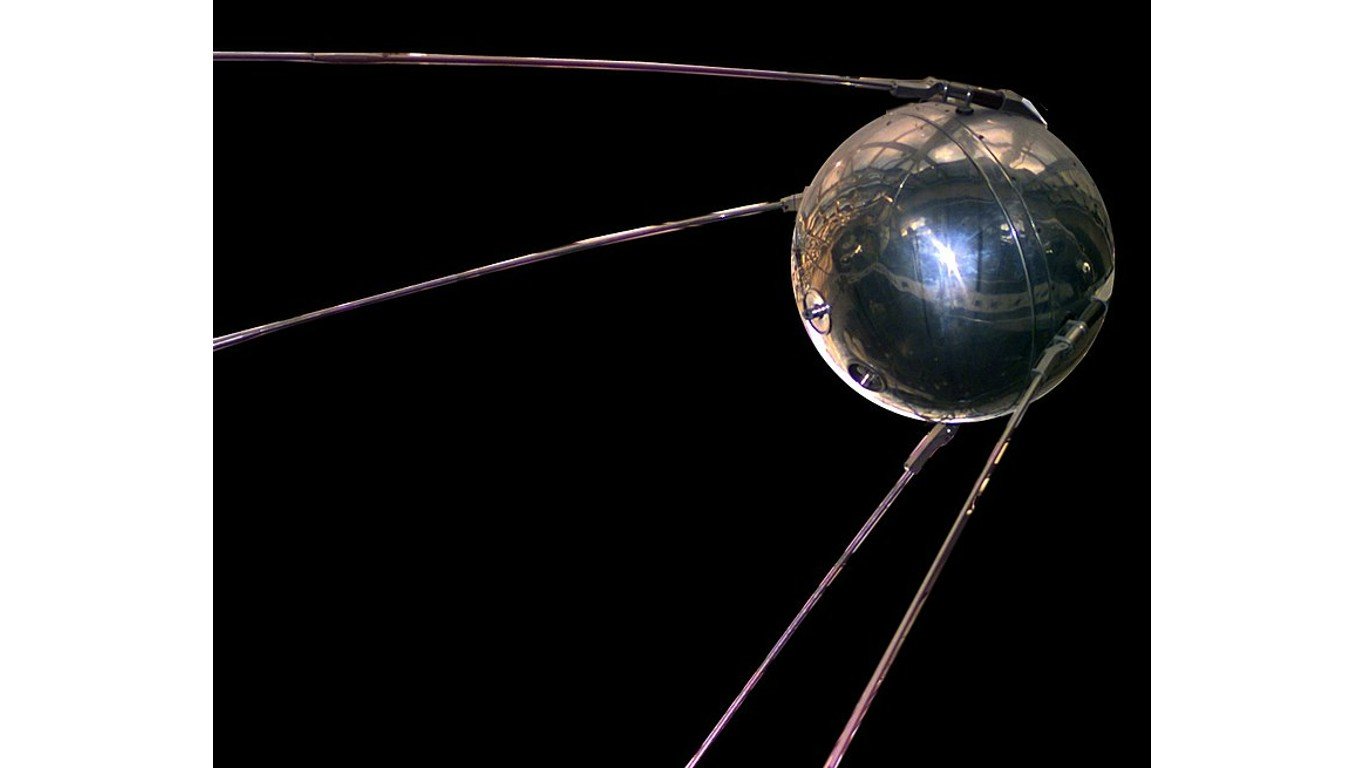
Soviet Union launch of Sputnik and start of the Space Race
> When: Oct. 4, 1957
> Where: Earth
The 1957 Soviet Union’s launch of Sputnik, a tiny (23-inch) sphere that was the first satellite ever sent into space, marked the start of the Space Race, a key event in the Cold War. Sputnik demonstrated the advanced technical capabilities of the Soviets, spurring the United States to invest heavily in its own space program, significantly influencing technological development and international relations in the latter half of the 20th century.
[in-text-ad]

Fidel Castro takeover of Cuba
> When: Jan.1, 1959
> Where: Cuba
Fidel Castro’s takeover of Cuba radically reshaped the geopolitical dynamics of the Cold War and forced the U.S. to face a communist challenge in its own hemisphere. It positioned Cuba as a strategic ally for the Soviet Union and a source of ideological and political challenge for the United States, influencing decades of international relations.
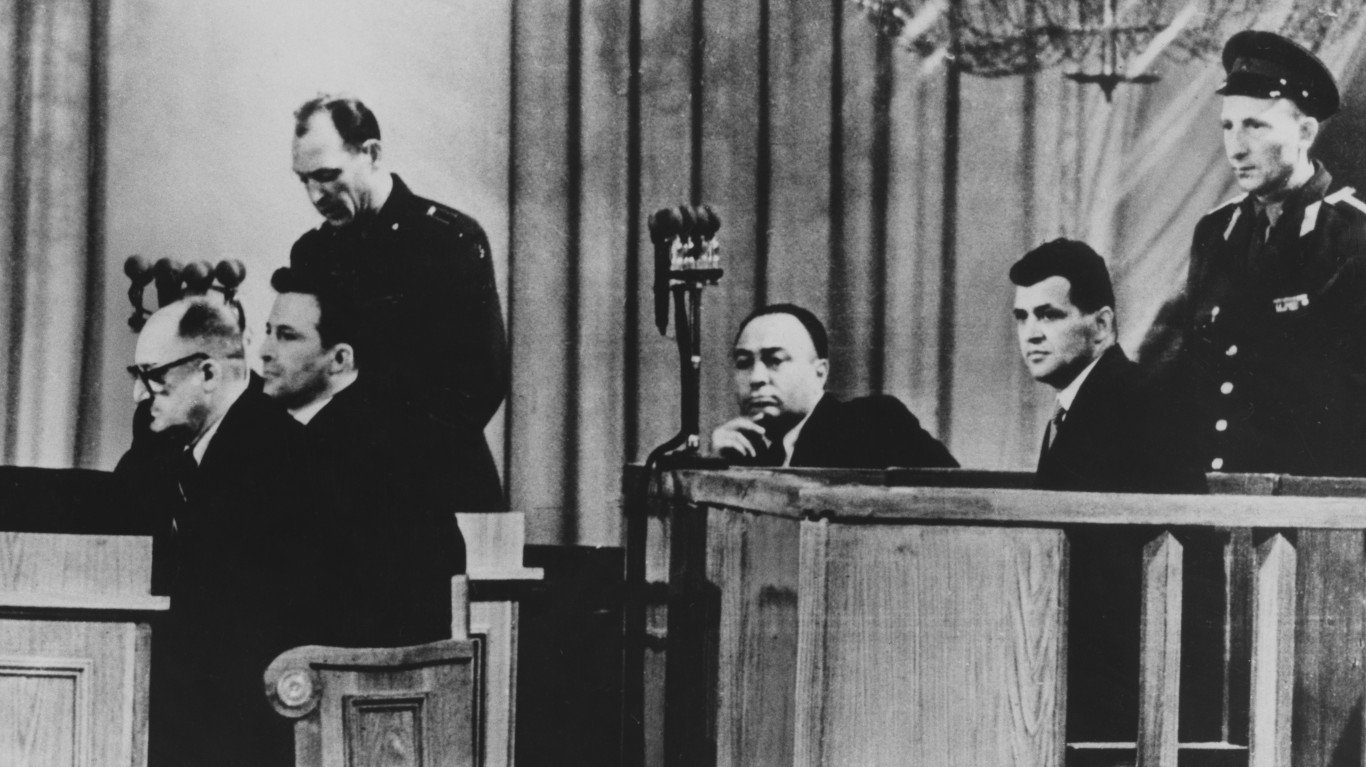
Shooting down of the U-2 spy plane
> When: May 1960
> Where: Sverdlovsk, Soviet Union
The U-2 spy plane incident, in which a high-altitude American spy plane was shot down over the Soviet Union, was an embarrassment to the U.S., and heightened Cold War tensions. It exposed U.S. covert activities and led to the collapse of a significant peace summit. The plane’s pilot and sole occupant, Francis Gary Powers, parachuted to safety, was arrested by the Soviets, and was later traded in a prisoner exchange for a KGB spy known as Rudolf Abel.
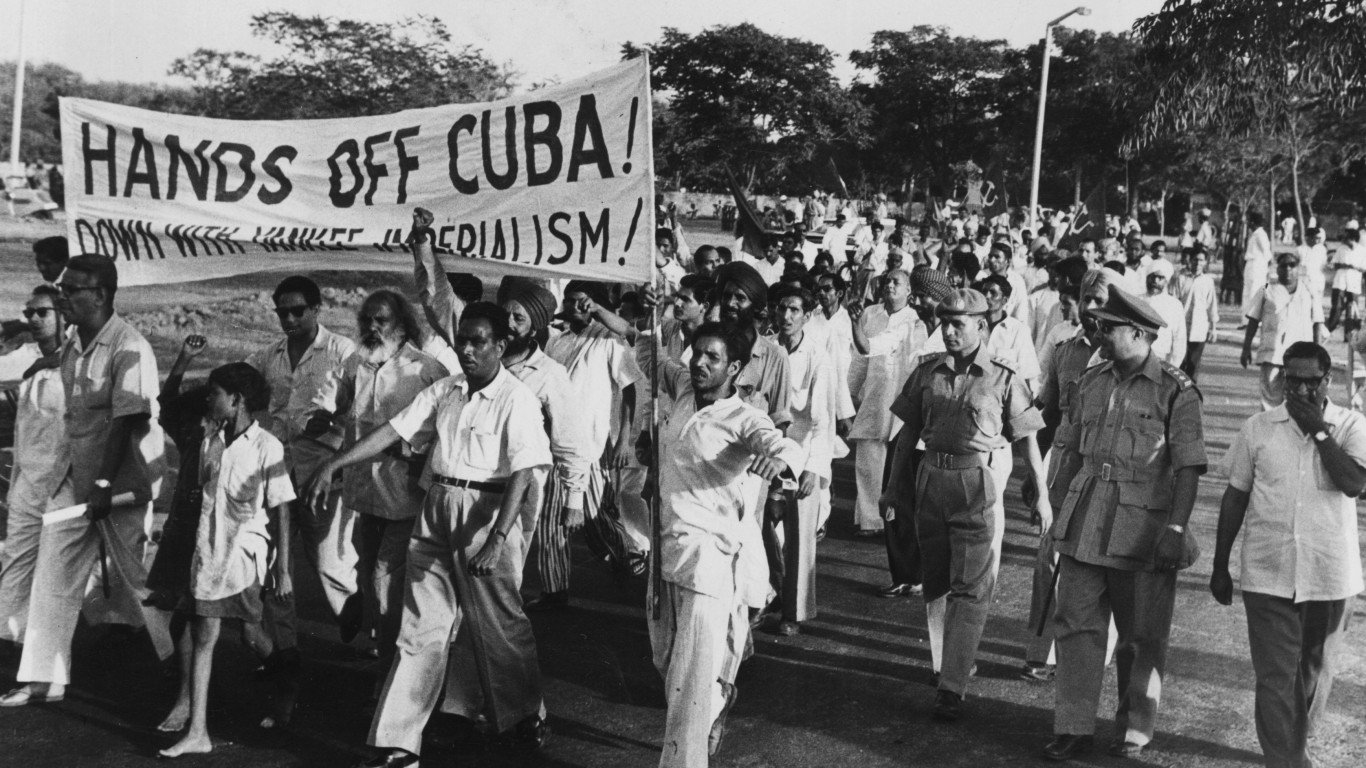
Failure of the Bay of Pigs invasion
> When: April 17-20, 1961
> Where: Cuba
The failure of the Bay of Pigs invasion of Cuba, by CIA-trained anti-Castro Cuban refugees, aimed at unseating the bearded dictator, highlighted the risks of covert military operations and solidified Castro’s power in Cuba. The incident embarrassed the U.S., bolstered Soviet-Cuban relations, and contributed to the subsequent Cuban Missile Crisis (see below).
[in-text-ad-2]
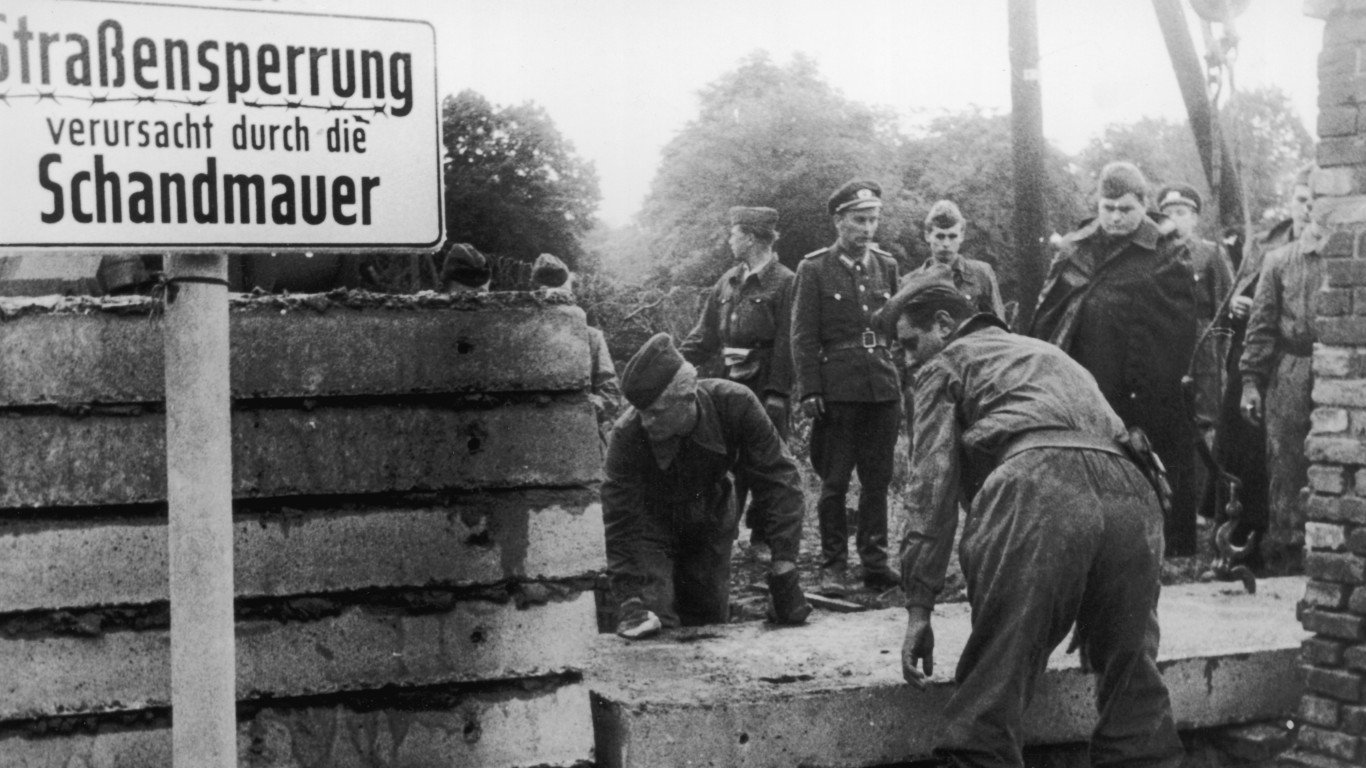
Building of the Berlin Wall
> When: Aug. 1961
> Where: Berlin, Germany
The Berlin Wall was a physical manifestation of the ideological divide between the capitalist West and the communist East during the Cold War. Its construction by East Germany, backed by the Soviet Union, aimed to prevent defections to the West. The Wall’s fall in 1989 symbolized the beginning of the end of the Cold War.
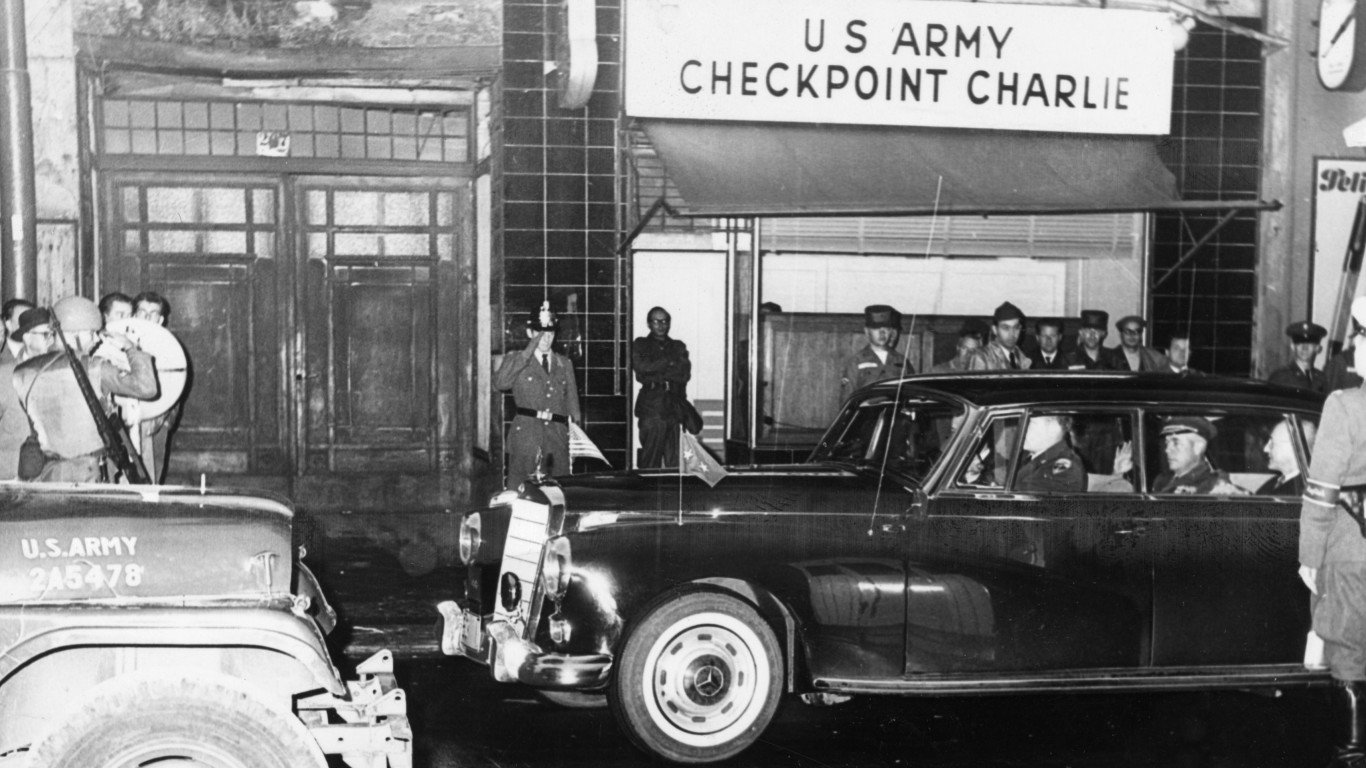
Berlin standoff
> When: Oct. 26-27, 1961
> Where: Berlin, Germany
This confrontation at Checkpoint Charlie – the most famous border crossing point between East and West Berlin – between tanks of the two superpowers heightened tensions and brought the adversaries to the brink of nuclear war. However, it ultimately accelerated diplomatic negotiations, emphasizing the necessity of communication between the two sides in preventing the escalation of global conflict.
[in-text-ad]
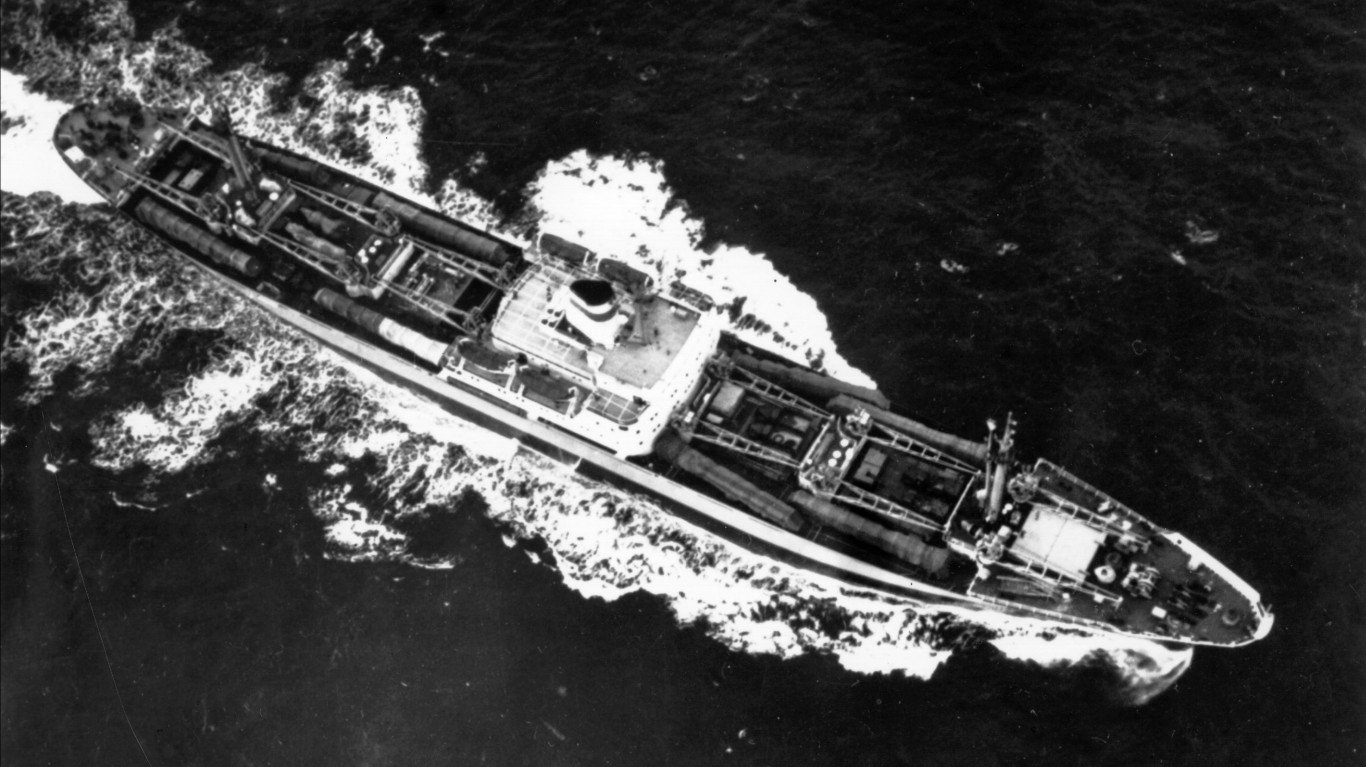
Cuban Missile Crisis
> When: Oct. 15-28, 1962
> Where: Cuba
The Cuban Missile Crisis marked the closest the world has come to nuclear war. The 13-day political and military standoff in Oct. 1962 began when the U.S. discovered Soviet nuclear missiles in Cuba, installed there in response to the deployment of American missiles in Turkey and Italy. On Oct. 27, a Soviet submarine captain, believing that war might already have begun, was on the verge of launching a nuclear torpedo, but his commander refused to okay the move. Potential armageddon was averted later that day when President Kennedy agreed to remove U.S. missiles from Turkey and possibly parts of Italy, in return for Soviet removal of their Cuban missiles. The resolution improved communication between the two superpowers, and led to the establishment of a direct hotline between their heads of state.
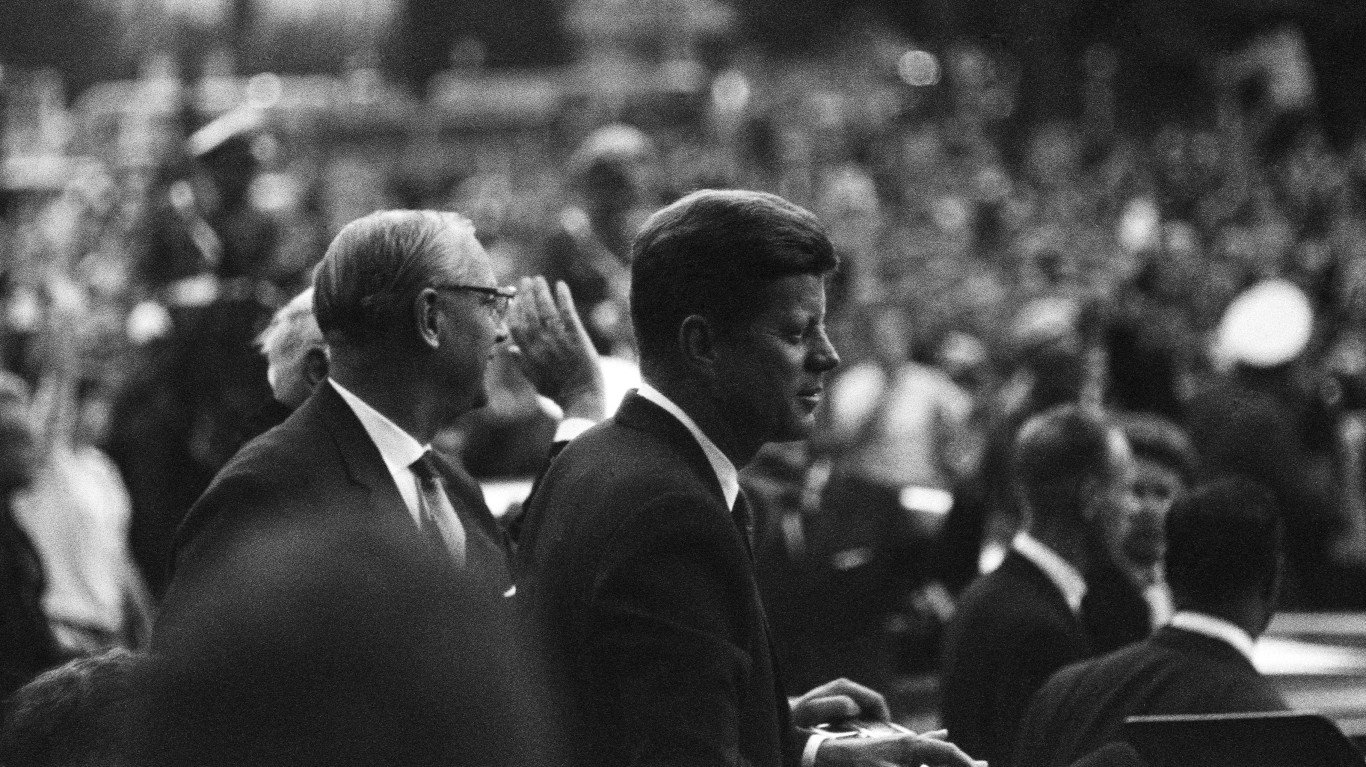
JFK speech in Berlin
> When: June 26, 1963
> Where: West Berlin
President John F. Kennedy’s Berlin speech in 1963 underscored U.S. commitment to West Berlin, effectively isolating it from Soviet-influenced East Germany. Kennedy’s famous phrase, “Ich bin ein Berliner” – “I am a Berliner” – conveyed solidarity with the people of Berlin, bolstering morale and reinforcing their stand against communism.
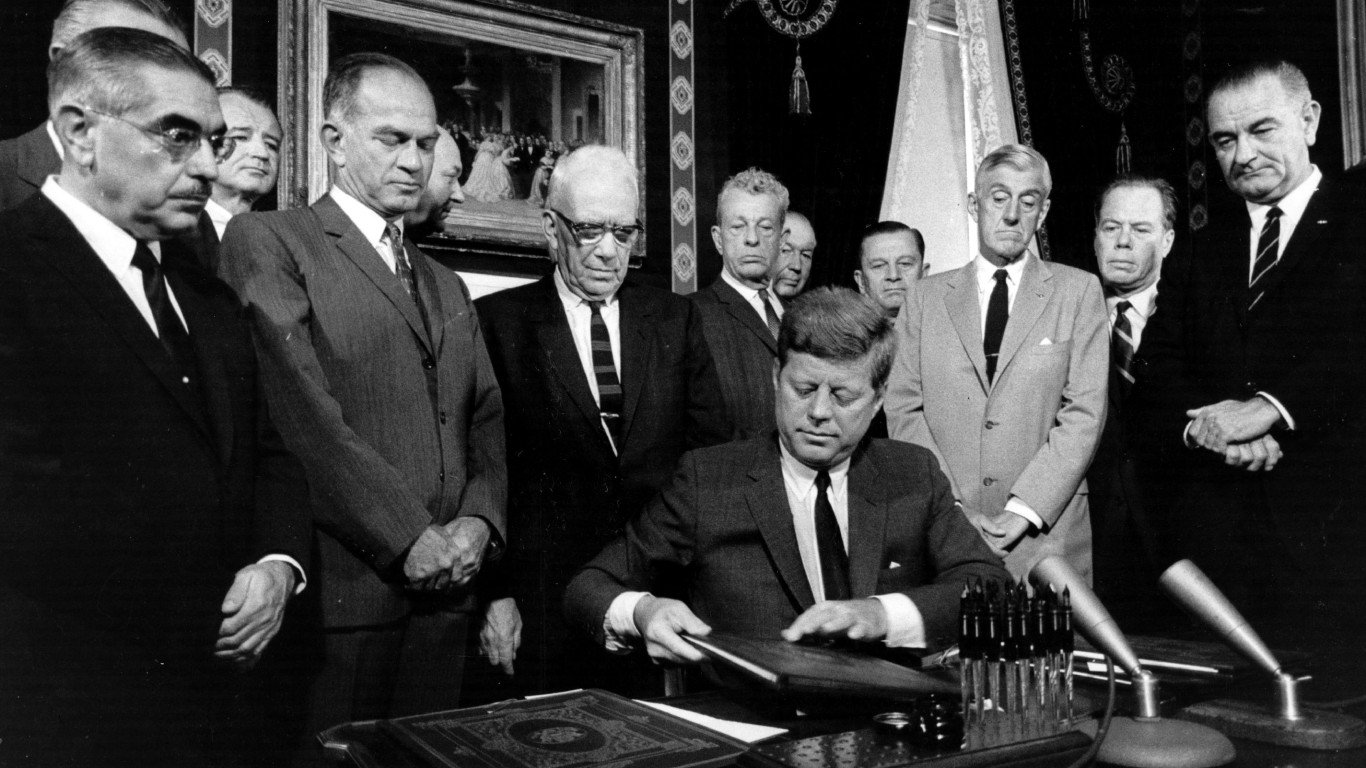
Signing of the Test Ban Treaty
> When: Sept. 24, 1963
> Where: Moscow, Soviet Union
The Test Ban Treaty, signed by the United States and the Soviet Union in Moscow, marked the first agreement between the superpowers to prohibit nuclear weapons tests in the atmosphere, outer space, and underwater, thereby significantly reducing nuclear fallout.
[in-text-ad-2]
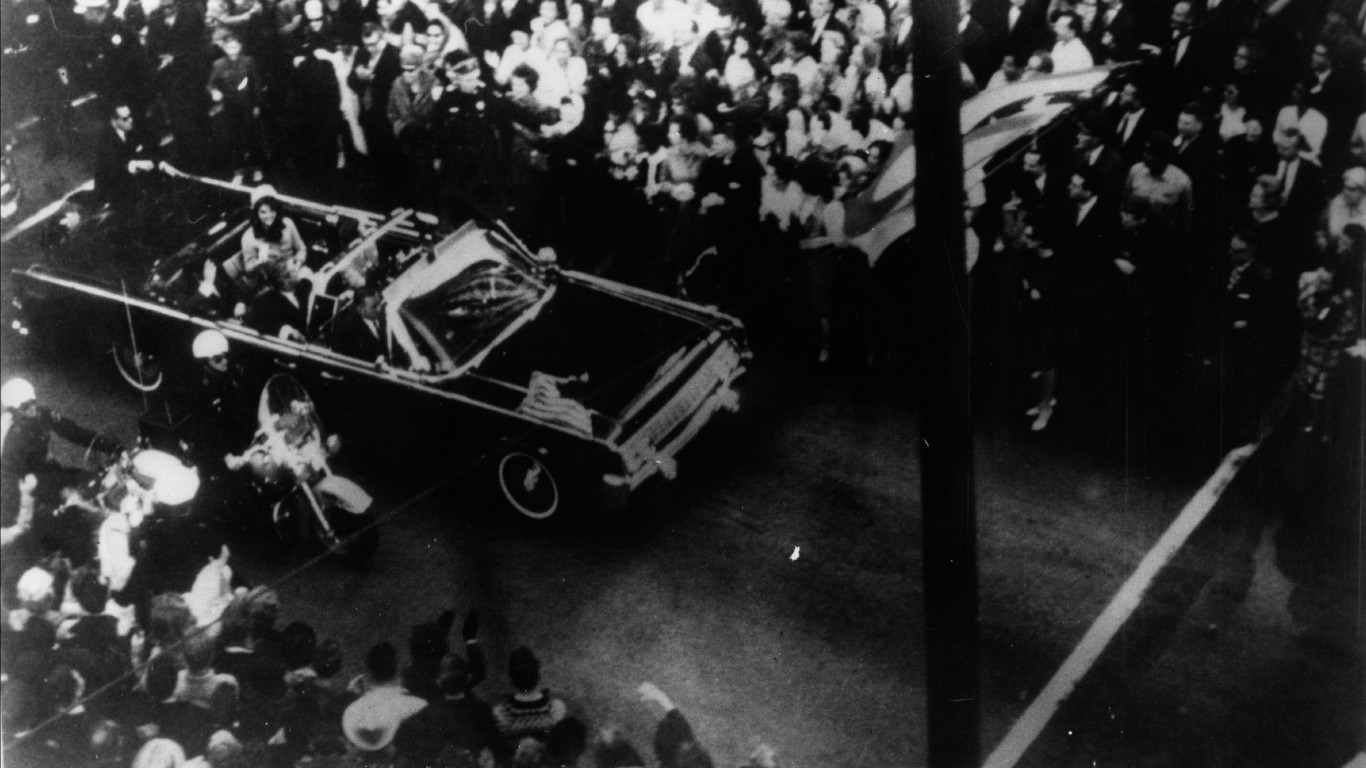
Assassination of JFK
> When: Nov. 22, 1963
> Where: Dallas, Texas
The assassination of President Kennedy escalated national anxieties during the Cold War, and abruptly and violently ended a presidency which had been focused on easing U.S.-Soviet relations. His demise and the accession of Lyndon Johnson to the nation’s highest office led to a period of uncertainty about the future direction of U.S. foreign policy.
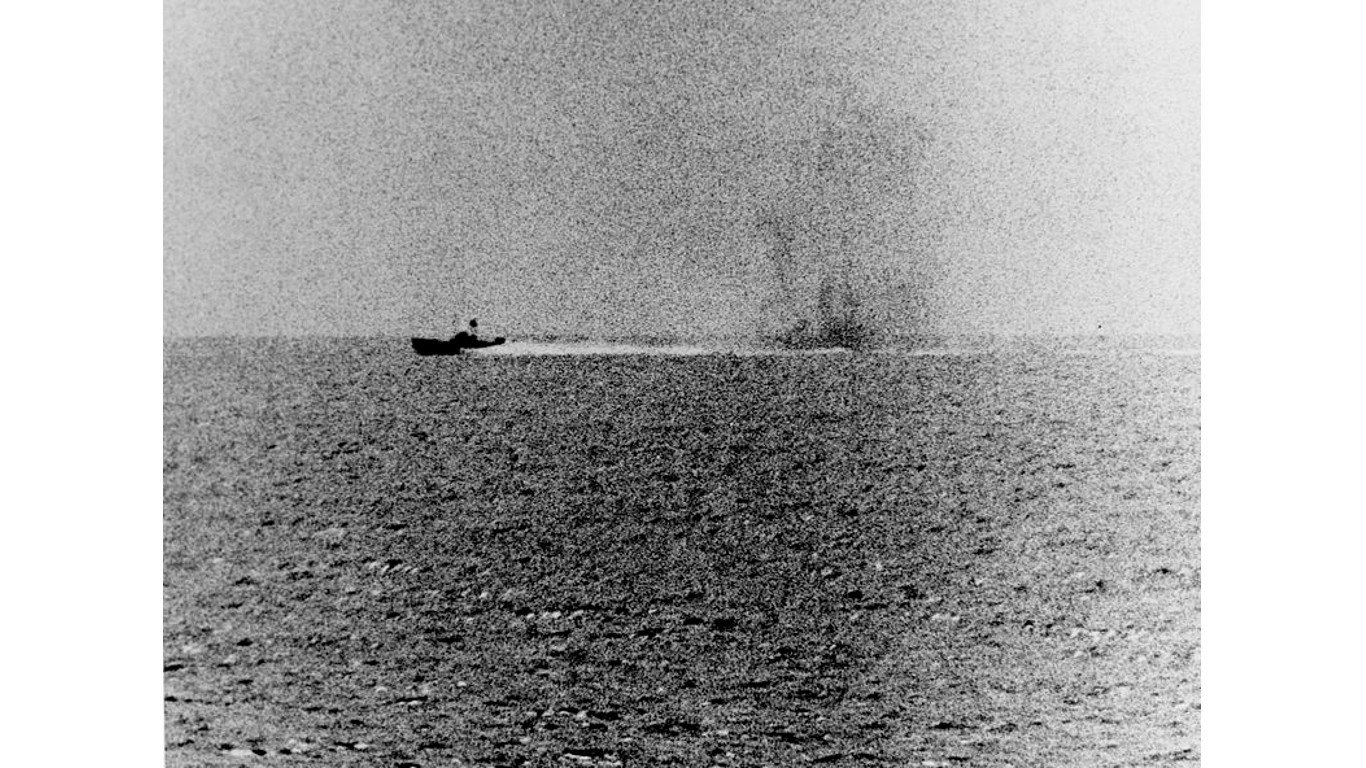
Gulf of Tonkin Incident
> When: Aug. 2, 1964
> Where: Waters off North Vietnam
The Gulf of Tonkin Incident, involving naval vessels from the U.S. and North Vietnam in 1964, significantly escalated the Vietnam War. After reported attacks on American Navy ships, Congress passed the Gulf of Tonkin Resolution, granting President Johnson broad war powers. However, the incident’s precise details remain controversial, influencing subsequent debates about the role of the president in such matters.
[in-text-ad]
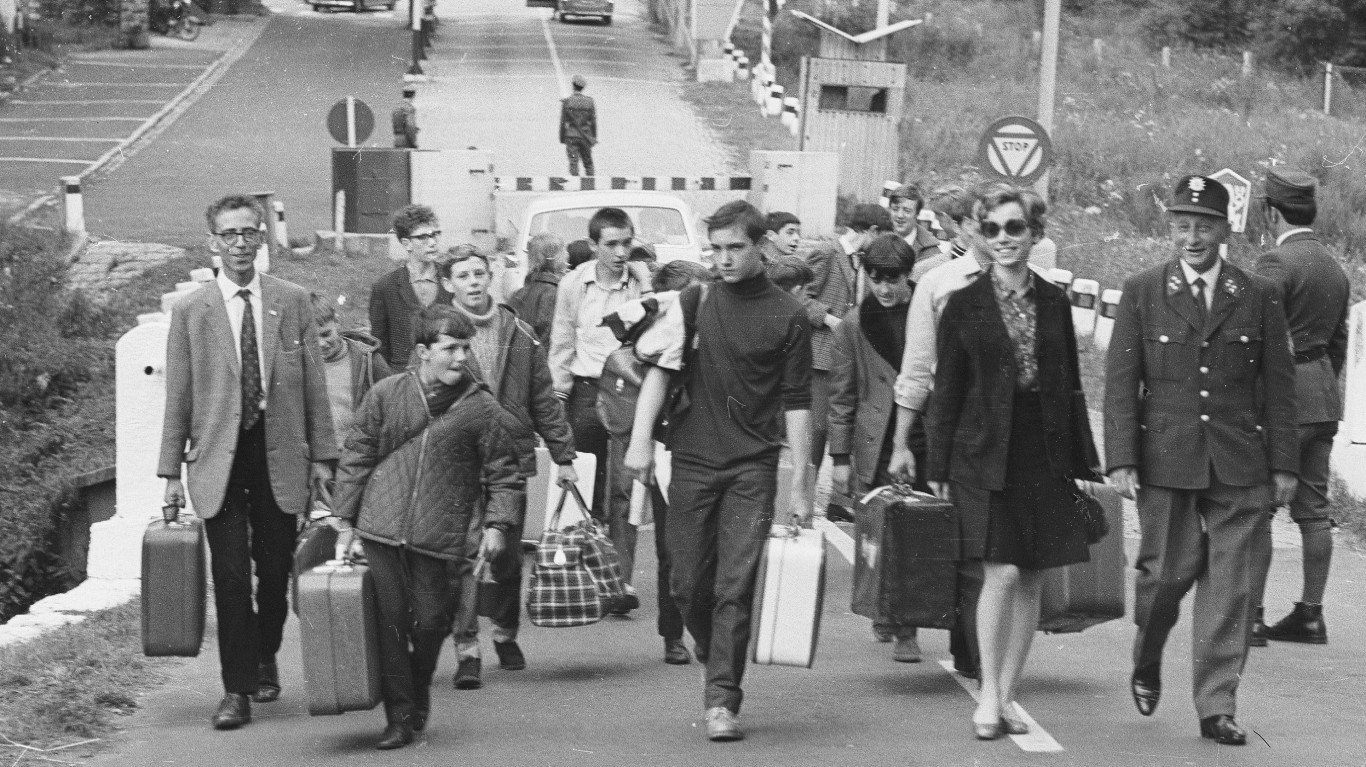
Prague Spring
> When: Jan. 5-Aug. 21, 1968
> Where: Czechoslovakia
The Prague Spring symbolized a brief period of political liberalization in Czechoslovakia. It challenged the Soviet Union’s control over its satellite states, leading to Soviet military intervention. The event highlighted the U.S. policy of containment but also its limitations, as it chose diplomatic protest over military action.
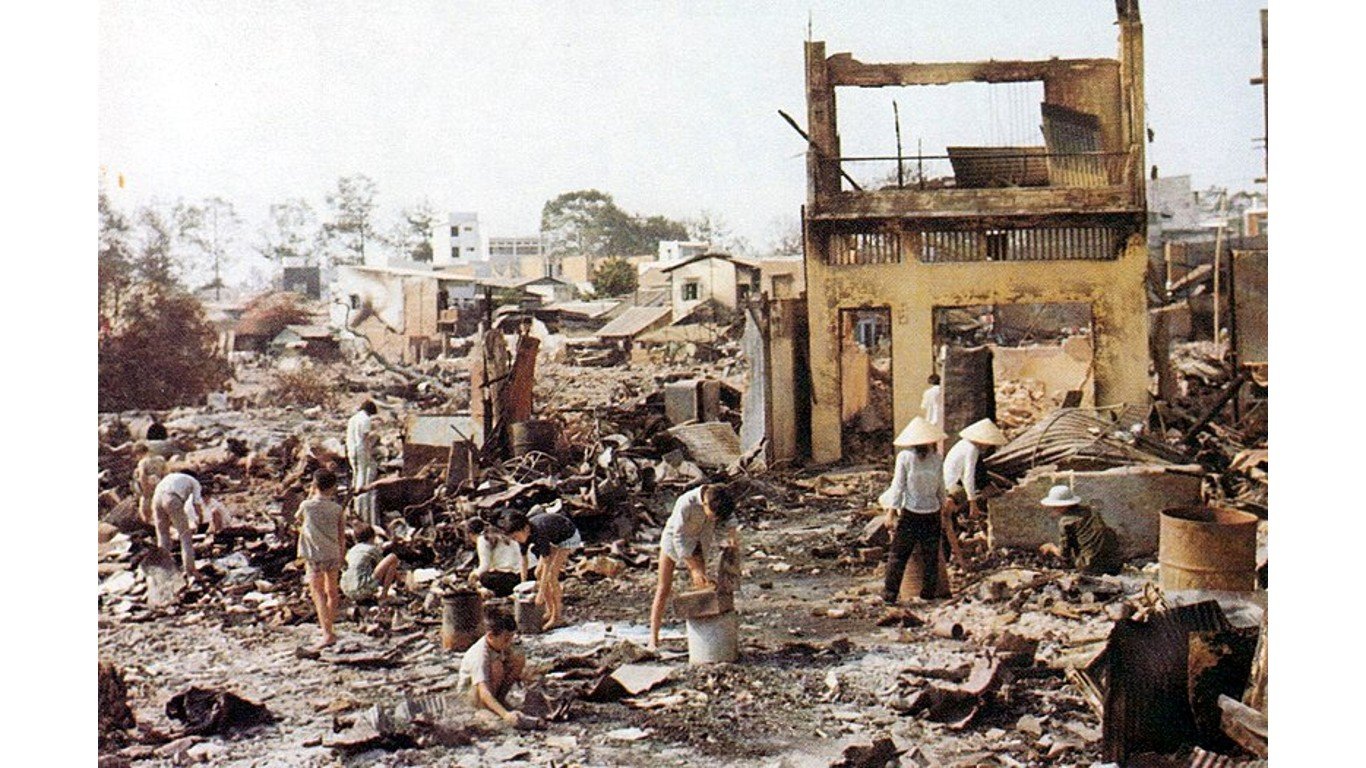
Tet Offensive
> When: Jan. 30, 1968
> Where: South Vietnam
The Tet Offensive was a key moment in the Vietnam War. A surprise attack initiated by the North Vietnamese and the Viet Cong against the South Vietnamese army and U.S. forces, it marked a significant escalation of the conflict. The campaign continued, in three phases, through September. Despite being an ultimate military failure for North Vietnam, the offensive exposed U.S. inability to quell the insurgency, dramatically shifted U.S. public opinion, and led to a de-escalation of American. involvement.
Announcement of the Brezhnev Doctrine
> When: Nov. 12, 1968
> Where: Moscow, Soviet Union
The Brezhnev Doctrine was a policy asserting the Soviet Union’s right to intervene in the affairs of communist countries in order to strengthen communism. It came as a delayed response to the Prague Spring reforms in Czechoslovakia, and played a significant role in further solidifying the ideological divide between the U.S. and the Soviet Union.
[in-text-ad-2]
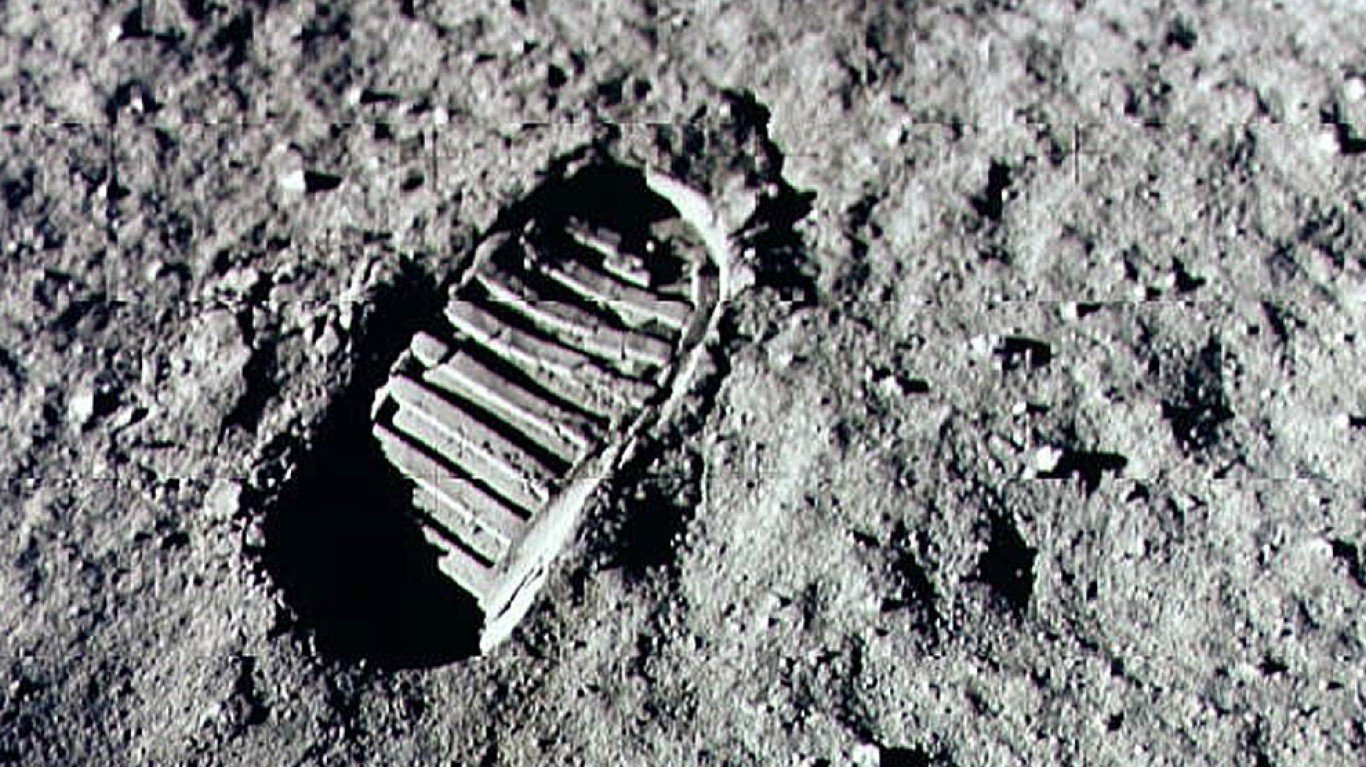
Moon landing
> When: July 20, 1969
> Where: Moon
The moon landing by the United States on July 20, 1969, marked a milestone in human achievement, symbolizing the peak of the Space Race between the United States and the Soviet Union and ultimately fostering international cooperation, as well as competition, in space endeavors.
Signing of the Nuclear Non-proliferation Treaty
> When: March 5,1970
> Where: Moscow, Soviet Union
The Nuclear Non-Proliferation Treaty, signed by the superpowers, was critical to international security. It aimed at preventing the spread of nuclear weapons, promoting disarmament, and facilitating peaceful nuclear energy use.
[in-text-ad]
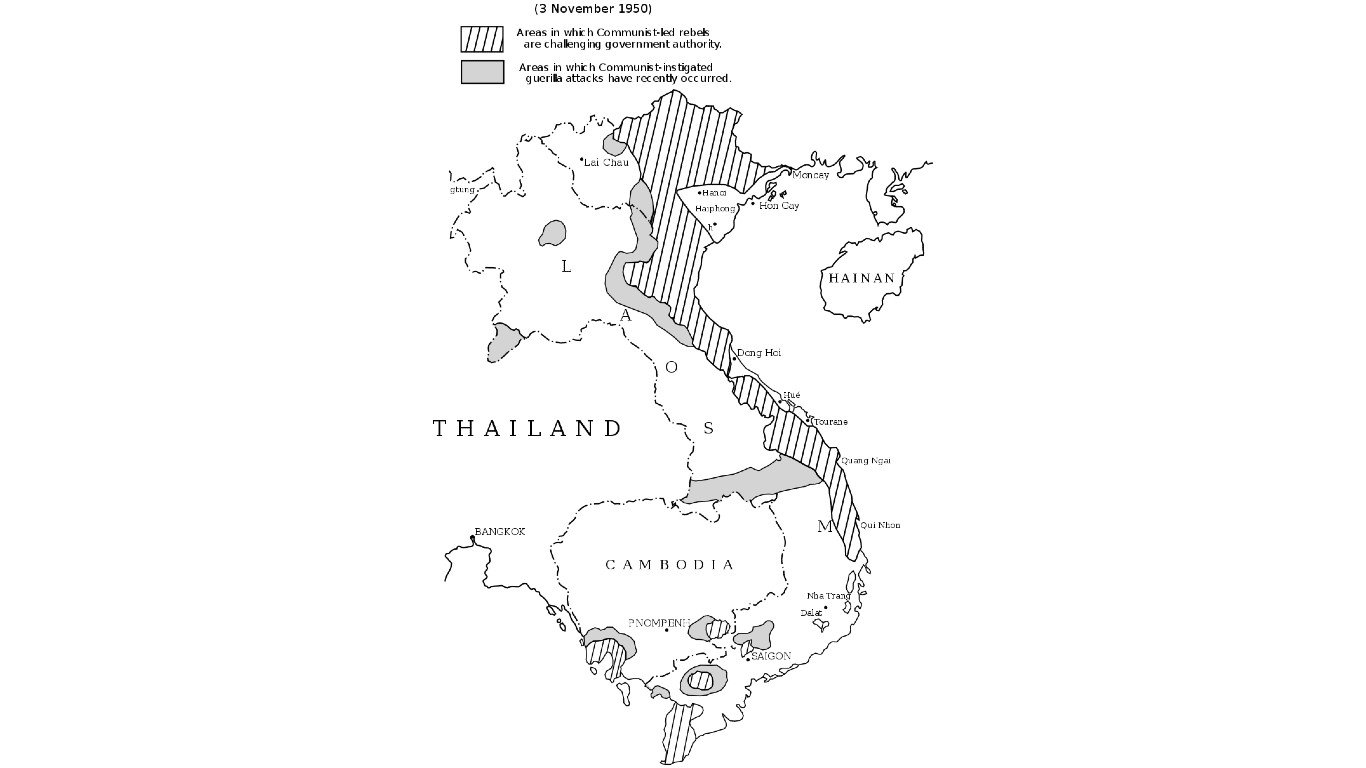
Release of the Pentagon Papers
> When: Jun. 13, 1971
> Where: United States
The Pentagon Papers, leaked to the public in 1971, revealed hidden aspects of U.S. involvement in the Vietnam War, including the providing of misleading information to Congress and the public. The disclosures stirred nationwide controversy, eroded trust in government, and influenced public opinion.
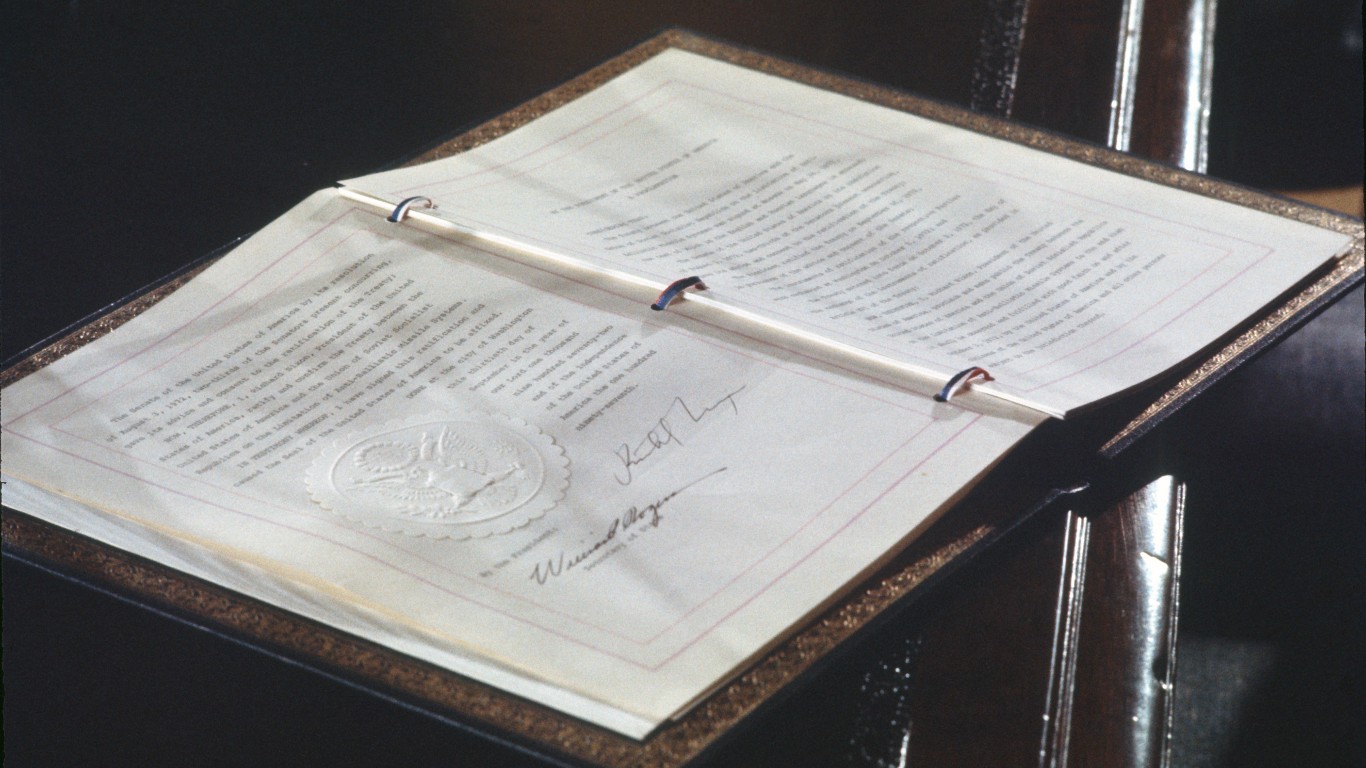
Signing of the Strategic Arms Limitation Agreement
> When: May. 26, 1972
> Where: Moscow, Soviet Union
The Strategic Arms Limitation Agreement, known as SALT I, signed in Moscow, was a landmark event in Cold War diplomacy. It marked the first time the U.S. and Soviet Union agreed to limit nuclear arsenals, easing international tensions and paving the way for subsequent arms control negotiations.
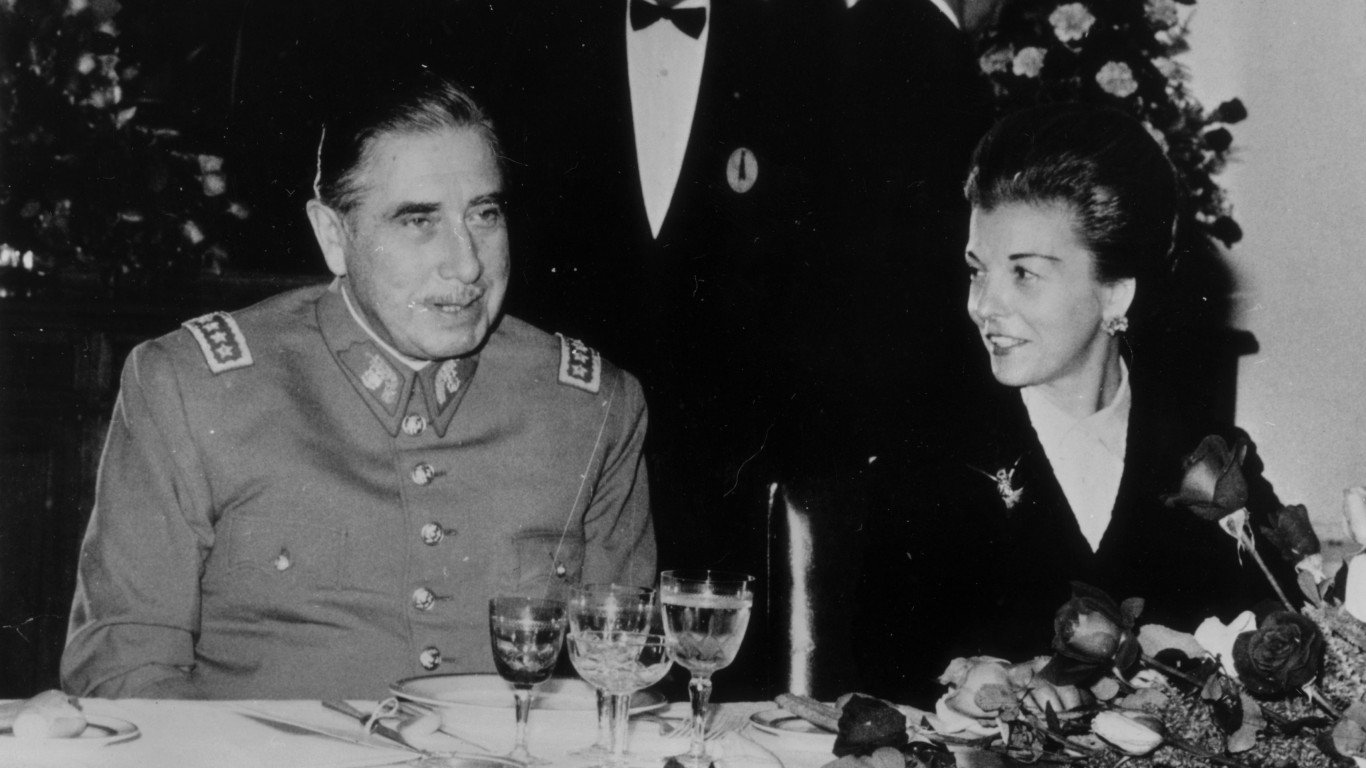
Chilean coup
> When: Sept. 11, 1973
> Where: Chile
The coup in Chile, in which military forces led by General Augusto Pinochet overthrew President Salvador Allende, marked an important shift in the country’s political landscape. The U.S. allegedly supported the coup to prevent a Marxist government, which it was feared would ally itself with the Soviets, from consolidating power in Latin America.
[in-text-ad-2]
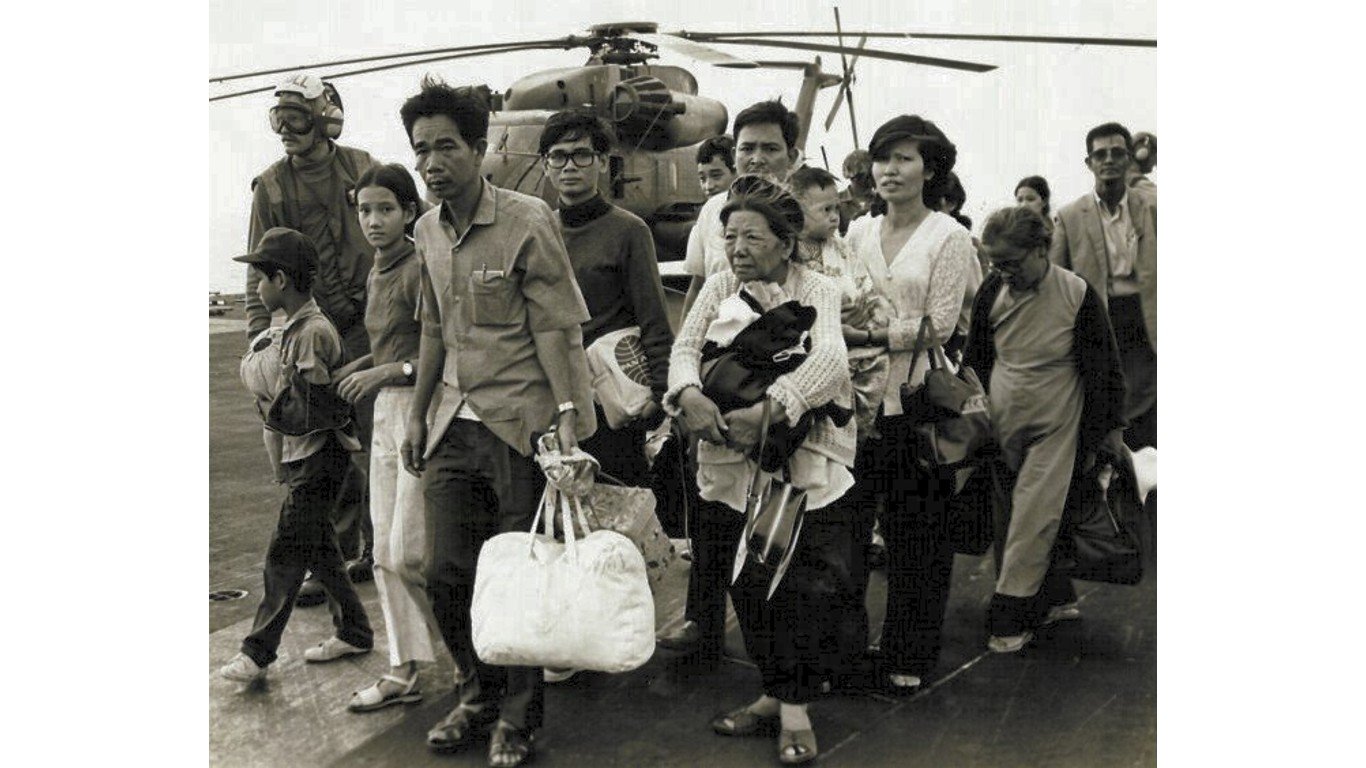
Fall of Saigon
> When: April 30,1975
> Where: South Vietnam
The fall of Saigon, and by extension all of South Vietnam, to communist forces from North Vietnam marked the end of the Vietnam War, the dissolution of the South Vietnamese government, the beginnings of the reunification of the country, and a major setback in the U.S. strategy of containing communism.
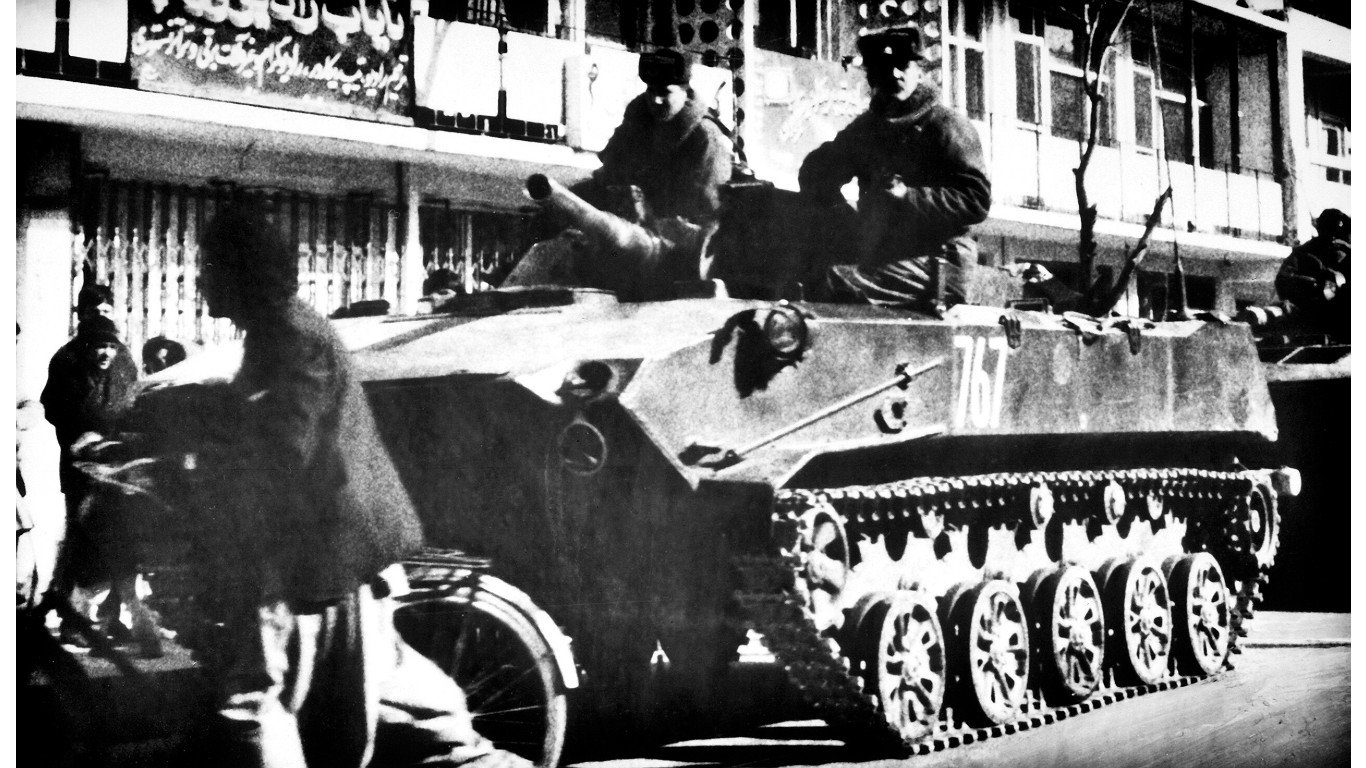
Soviet invasion of Afghanistan
> When: Dec. 24, 1979
> Where: Afghanistan
The Soviet invasion of Afghanistan marked a new phase in the Cold War and the reaffirmation of the Brezhnev Doctrine. It resulted in a protracted conflict that devastated Afghanistan, while drawing the U.S. into supporting anti-Soviet Mujahideen forces. This event strained U.S.-Soviet relations and set the stage for the eventual downfall of the U.S.S.R.
[in-text-ad]
Founding of Solidarity
> When: Aug. 31, 1980
> Where: Poland
Solidarity – officially the Independent Self-Governing Trade Union “Solidarity” – was a non-violent labor movement opposing communist rule. It was the first meaningful opposition initiative since the communists took control of Poland, and Solidarity was the first independent trade union in a communist country to be recognized by the state. Its rise was a factor in the beginning of the end of Soviet influence in Eastern Europe. While the U.S. provided covert support to the movement, its role was primarily symbolic.
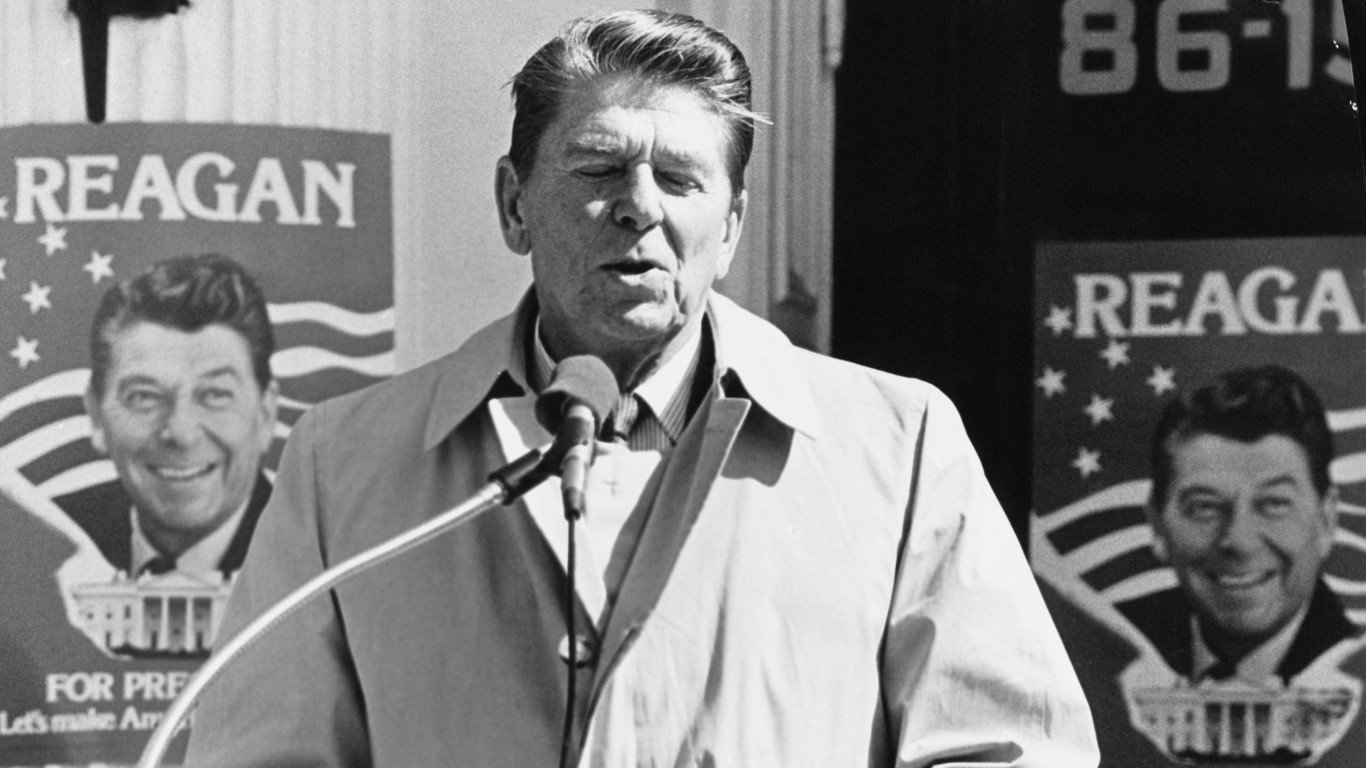
Election of Ronald Reagan
> When: Nov. 4, 1980
> Where: United States
Ronald Reagan’s election spurred a shift in US policy toward the Soviet Union. His hard-line stance, including a major build-up of military capabilities and strong rhetoric such as his speech at the Berlin Wall (“Mr. Gorbachev, tear down this wall!”), and intensified Cold War tensions. His leadership is often credited with contributing to the eventual end of the Cold War.
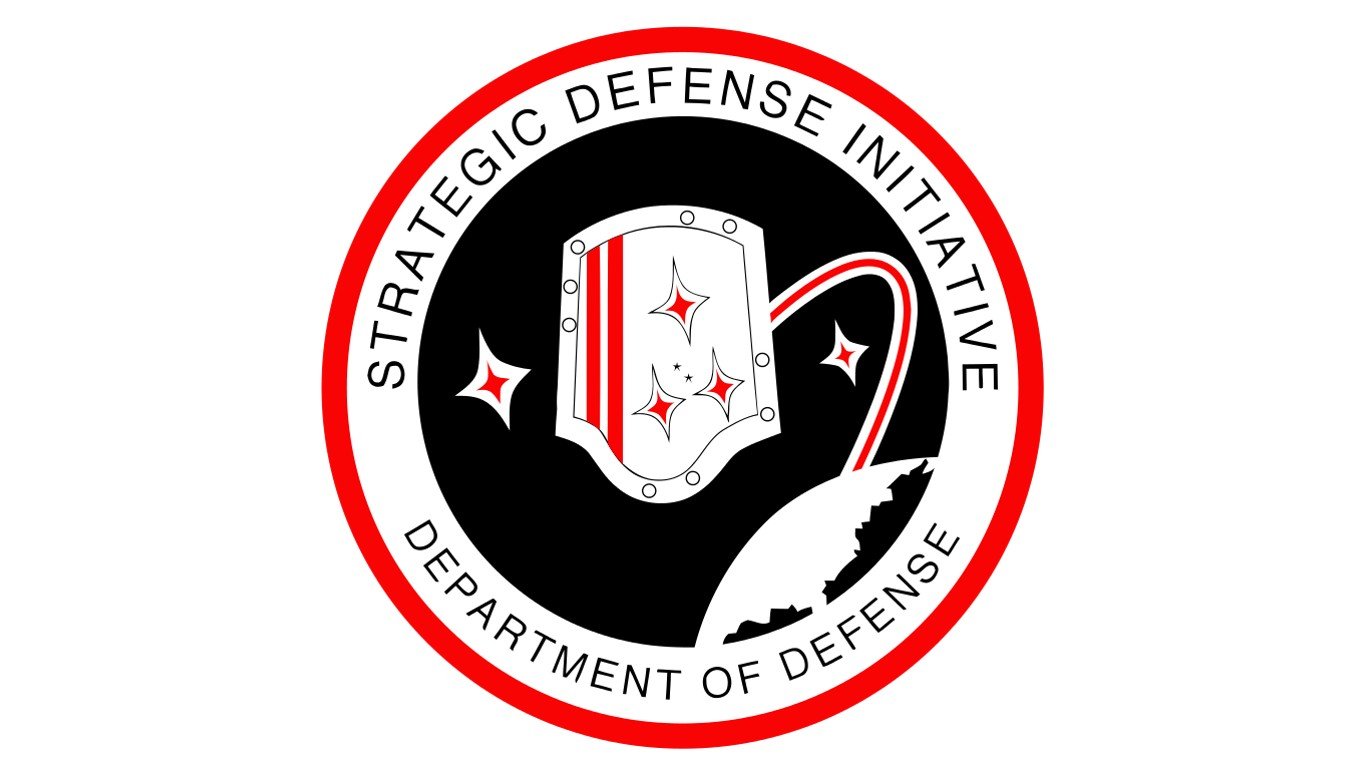
Announcement of the Strategic Defense Initiative
> When: March 23, 1983
> Where: United States
The Strategic Defense Initiative, or SDI, announced by President Reagan, aimed to create a space-based system to protect America from potential nuclear attacks, challenging the concept of mutual assured destruction – the strategy of deterrence positing that nuclear war would eradicate both sides. Ridiculed by critics as “Star Wars,” it was never fully realized, but its concept strained the Soviet economy, hastening the end of the Cold War.
[in-text-ad-2]
Nuclear war near-miss
> When: Nov. 2, 1983
> Where: Europe
The near-miss nuclear incident underscored the perilous brinkmanship of the Cold War. Misinterpretations of a NATO exercise almost provoked a nuclear response from the Soviet Union, highlighting the potential for catastrophic misunderstandings in high-stress geopolitical situations. This event emphasized the need for clear communication between superpowers to prevent accidental escalation.
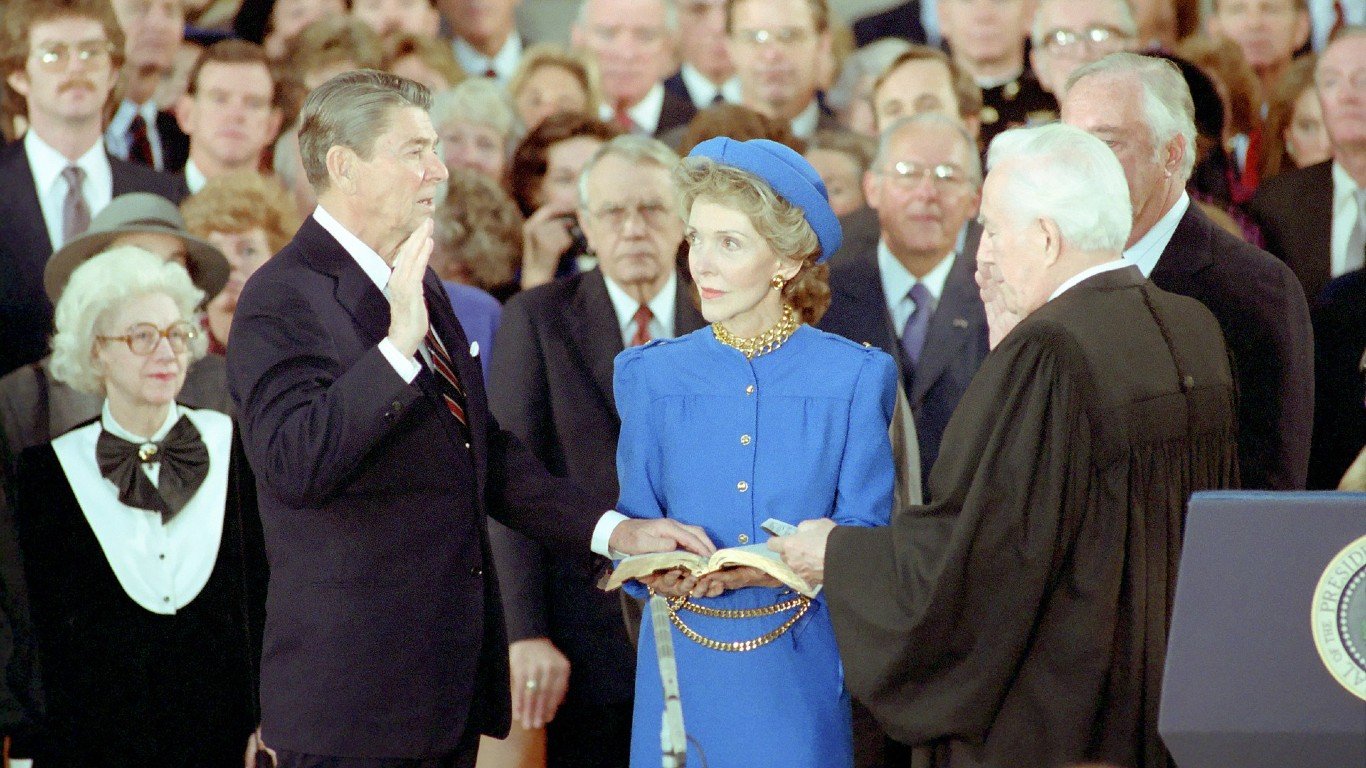
Introduction of the Reagan Doctrine
> When: Feb. 6, 1985
> Where: Washington, D.C.
The Reagan Doctrine, outlined in the president’s annual State of the Union address, pledged U.S. support to anti-communist insurgents worldwide, aiming to roll back Soviet influence in Asia, Africa, and Latin America.
[in-text-ad]
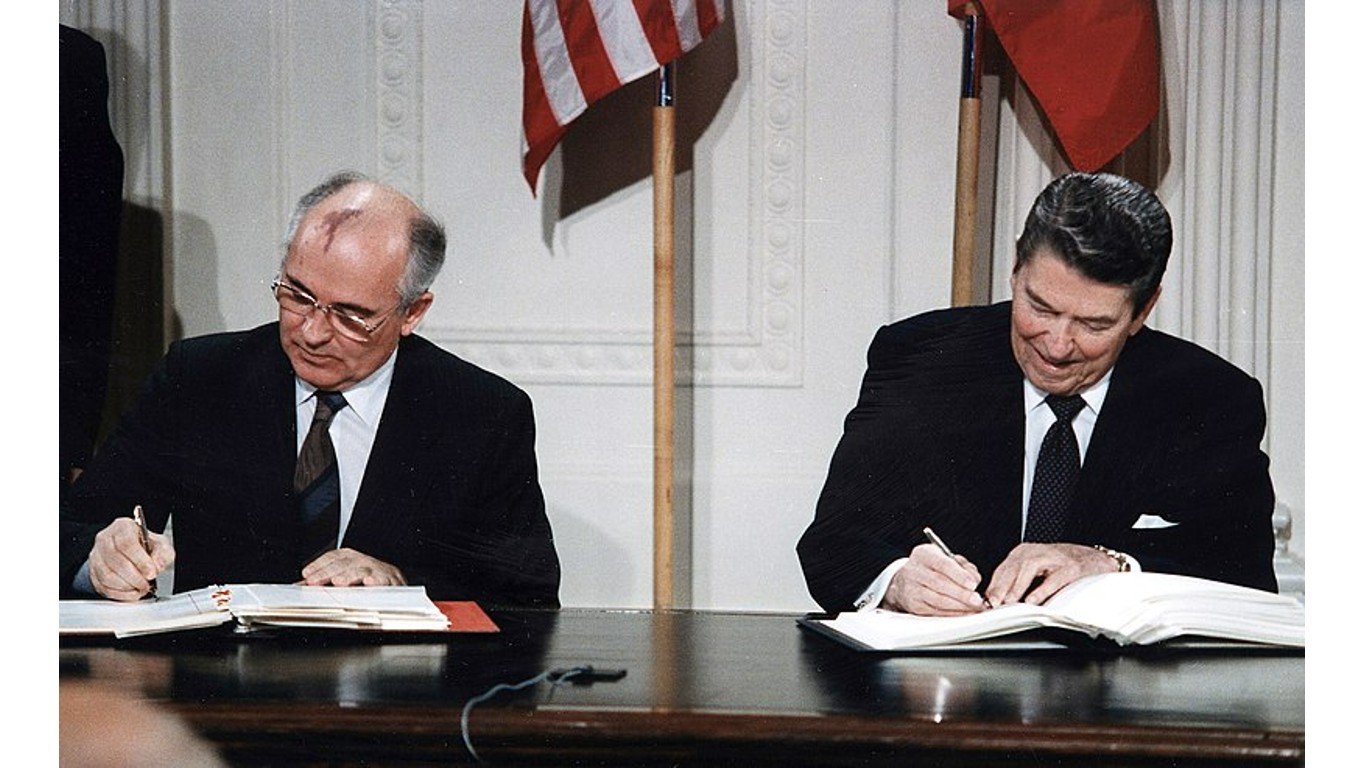
Signing of the INF treaty
> When: Dec. 8, 1987
> Where: Washington, D.C.
The Intermediate-Range Nuclear Forces Treaty marked a key turning point in U.S.-Soviet relations. It eliminated all land-based ballistic and cruise missiles with ranges of 500 to 5,500 kilometers (about 311 to 3,418 miles), reducing the risk of nuclear escalation. It served as a significant step toward international nuclear disarmament and laid the groundwork for future arms control agreements.
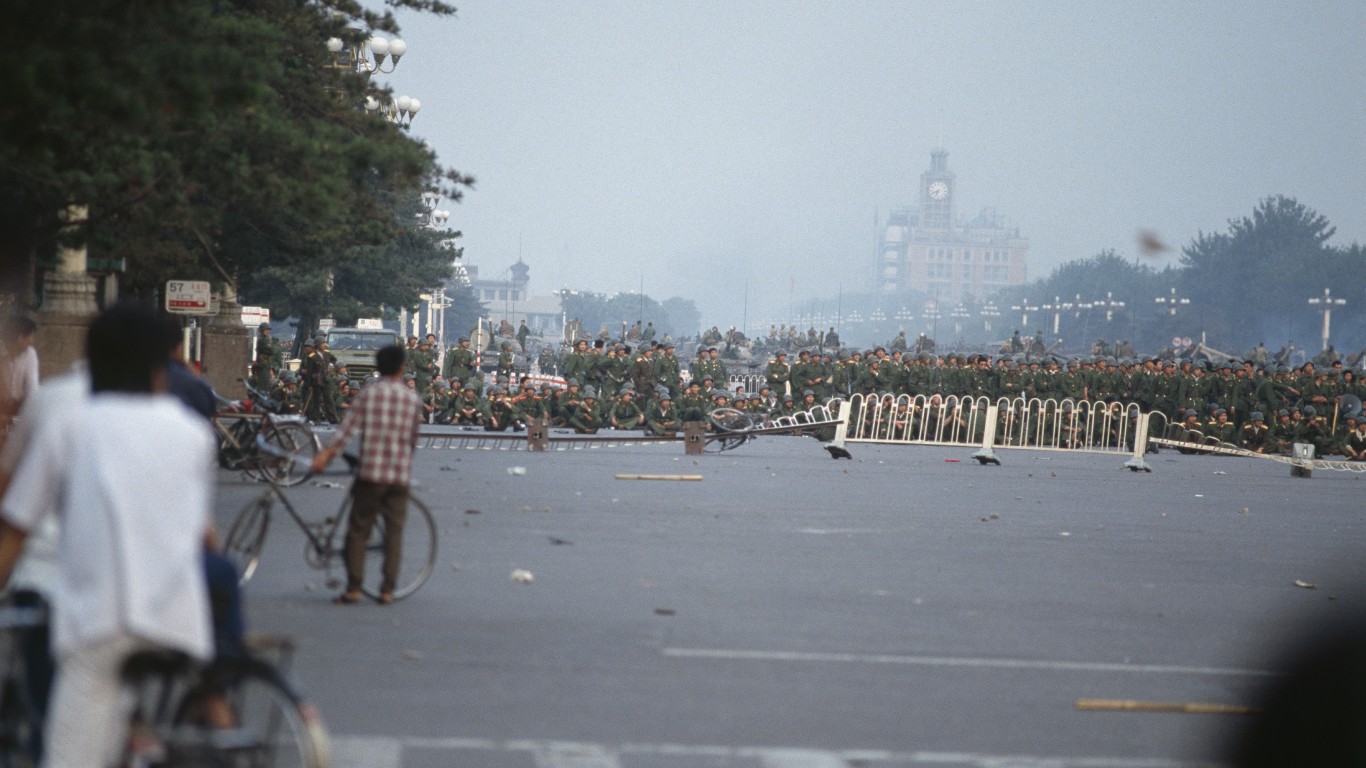
Tiananmen Square crackdown
> When: June 3-4, 1989
> Where: China
The Chinese government’s crackdown on pro-democracy student demonstrators at Tiananmen Square in Beijing highlighted the communist Chinese government’s hard-line stance on political dissent and influenced China’s future relations with both the U.S. and the Soviet Union. The number of both civilians and soldiers who were killed and wounded in the crackdown is disputed, but most sources agree that there were about 300 deaths, with 6,000 to 7,000 injured.
Fall of the Berlin Wall
> When: Nov. 9, 1989
> Where: Berlin, Germany
Tentative gaps in the iron curtain began with the opening of the border between Hungary and Austria on Aug. 19, 1989, but passage between East and West Berlin was authorized for the first time on Nov. 9 that year, following major changes in the structure of the East German government. Physical destruction of the wall began almost immediately, with “Mauerspechte” or “wall-peckers” chipping away with chisels, hammers, and other tools. The fall of the Berlin Wall signaled the beginning of the end of a divided Germany and was a symbol of the collapse of communism.
[in-text-ad-2]
Reunification of Germany
> When: Oct. 3, 1990
> Where: Berlin, Germany
The fall of the Berlin Wall paved the way for German reunification, but it took almost a year for the political, diplomatic, and economic intricacies involved in rejoining the two parts of the country to be worked out. The reemergence of Germany as a single nation reshaped the political landscape of Europe and the world.
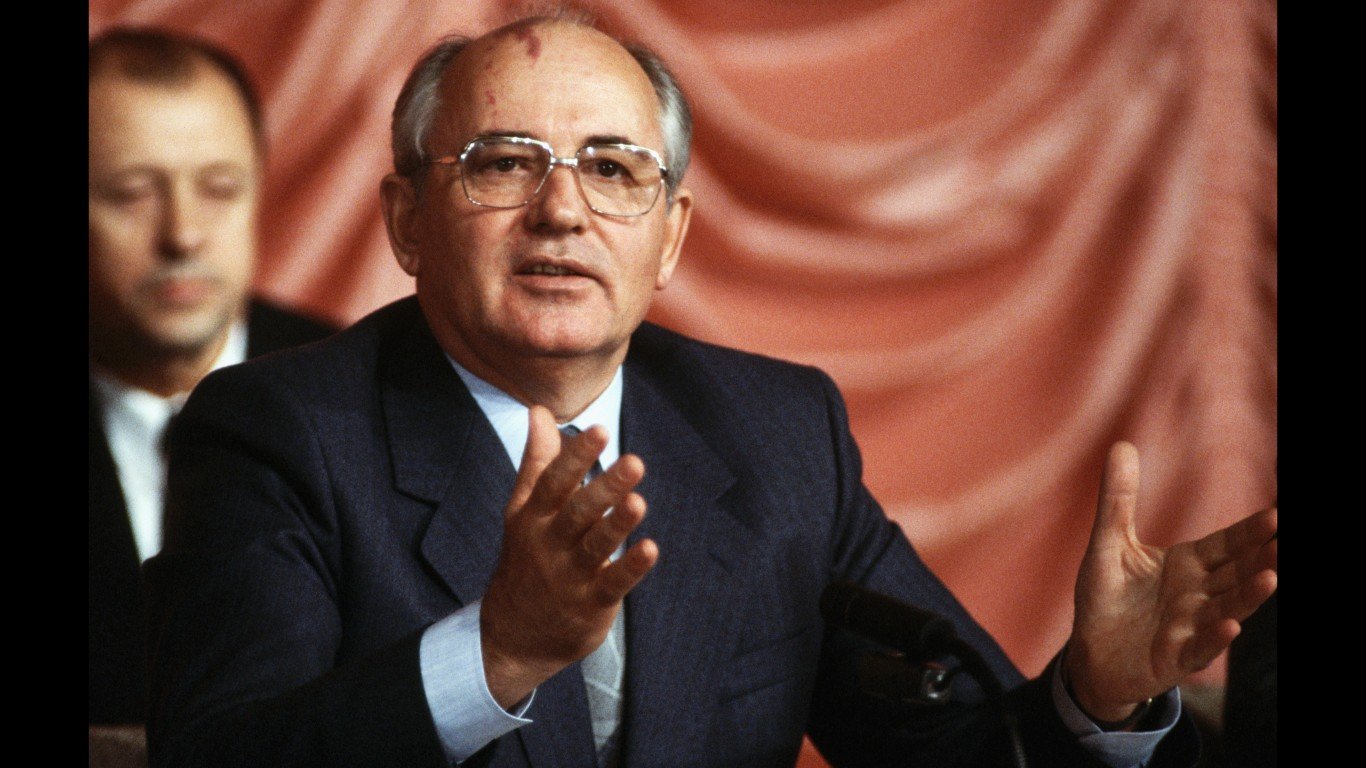
Collapse of the Soviet Union
> When: Dec. 26,1991
> Where: Soviet Union
The Soviet Union fell apart in stages, following President and General Secretary Mikhail Gorbachev’s attempts at internal reform. Estonia, one of the socialist republics making up the U.S.S.R., declared its sovereignty in mid-November of 1988 and in 1990 two others, Georgia and Lithuania, declared full independence. Most of the other republics followed in the ensuing months, effectively destroying the union. On Dec. 25, 1991, Gorbachev presided over the lowering of the Soviet flag and its replacement with the Russian tricolor. The following day, the upper chamber of the Supreme Soviet voted the Soviet Union out of existence – and the Cold War as the world had known it for more than four decades was over.
Sponsored: Find a Qualified Financial Advisor
Finding a qualified financial advisor doesn’t have to be hard. SmartAsset’s free tool matches you with up to 3 fiduciary financial advisors in your area in 5 minutes. Each advisor has been vetted by SmartAsset and is held to a fiduciary standard to act in your best interests. If you’re ready to be matched with local advisors that can help you achieve your financial goals, get started now.
Thank you for reading! Have some feedback for us?
Contact the 24/7 Wall St. editorial team.
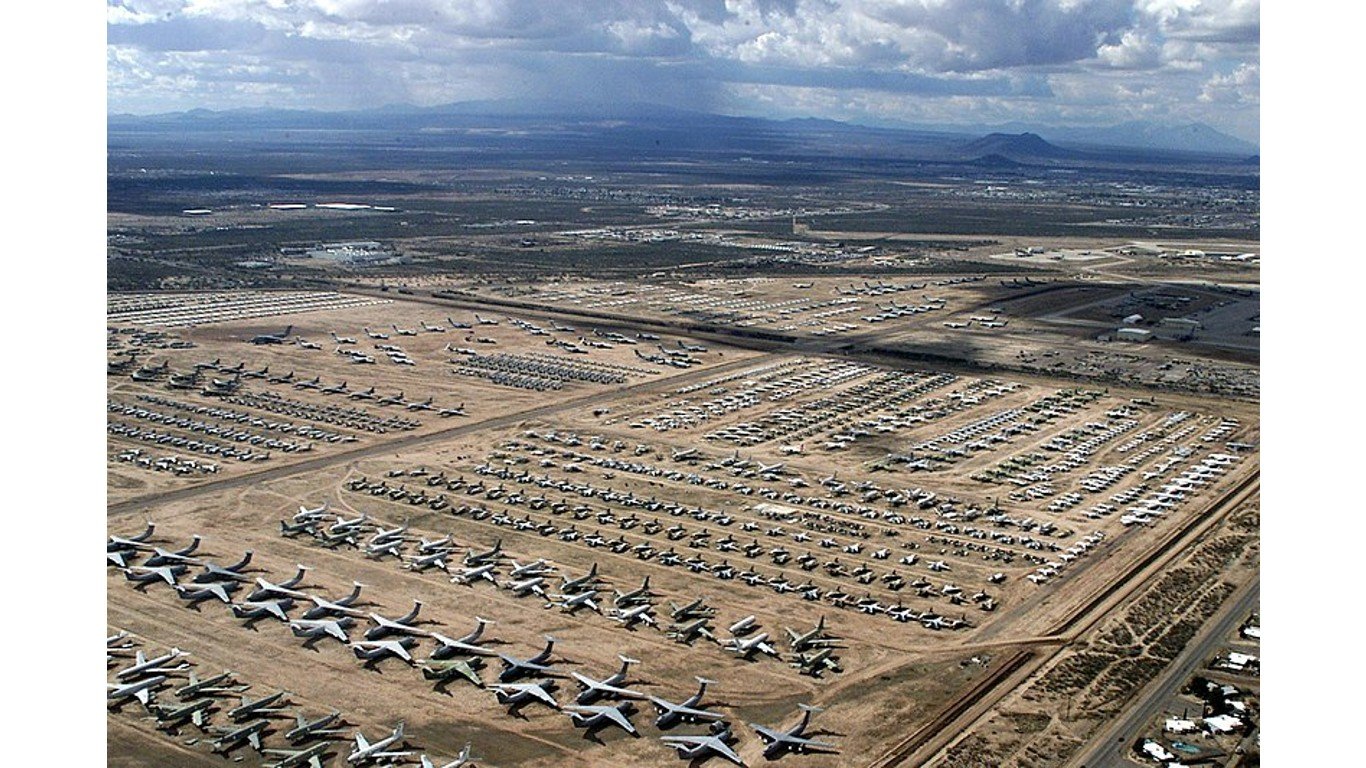 24/7 Wall St.
24/7 Wall St.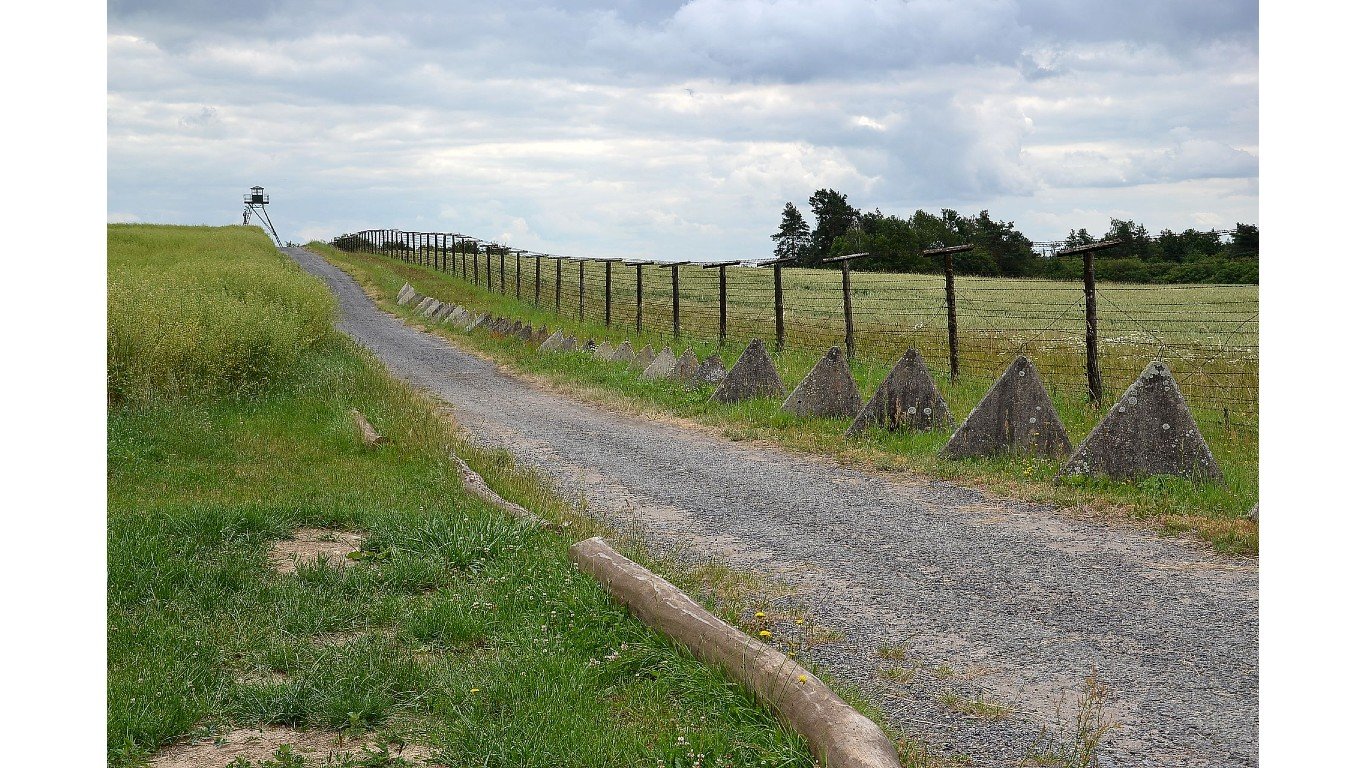
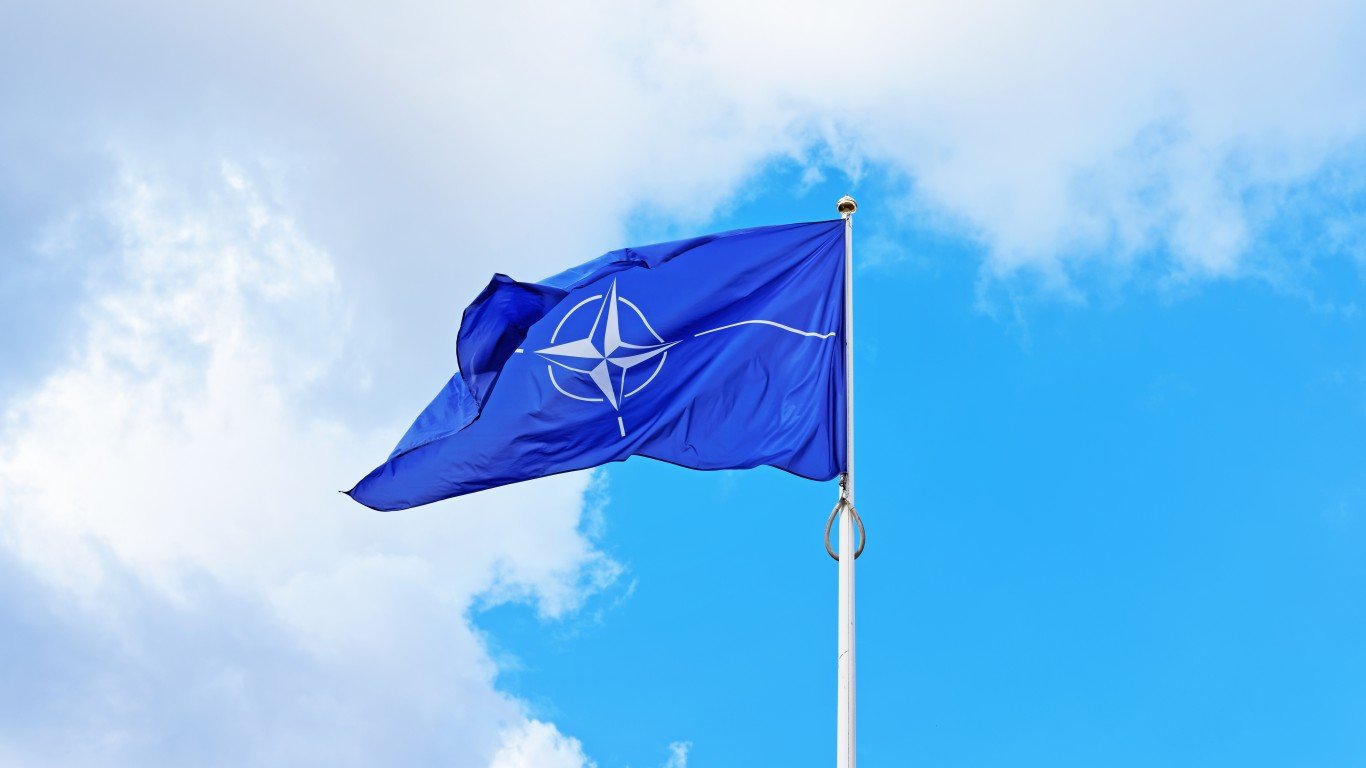 24/7 Wall St.
24/7 Wall St.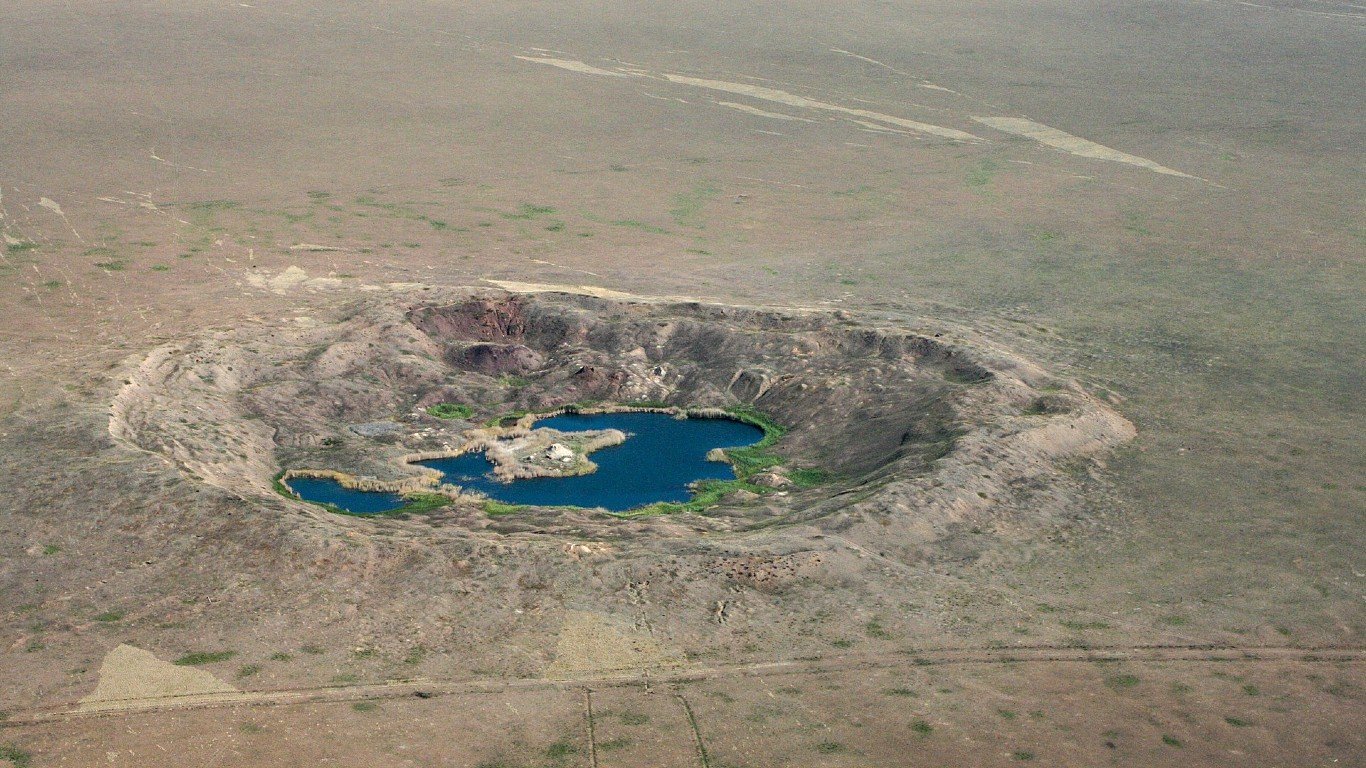
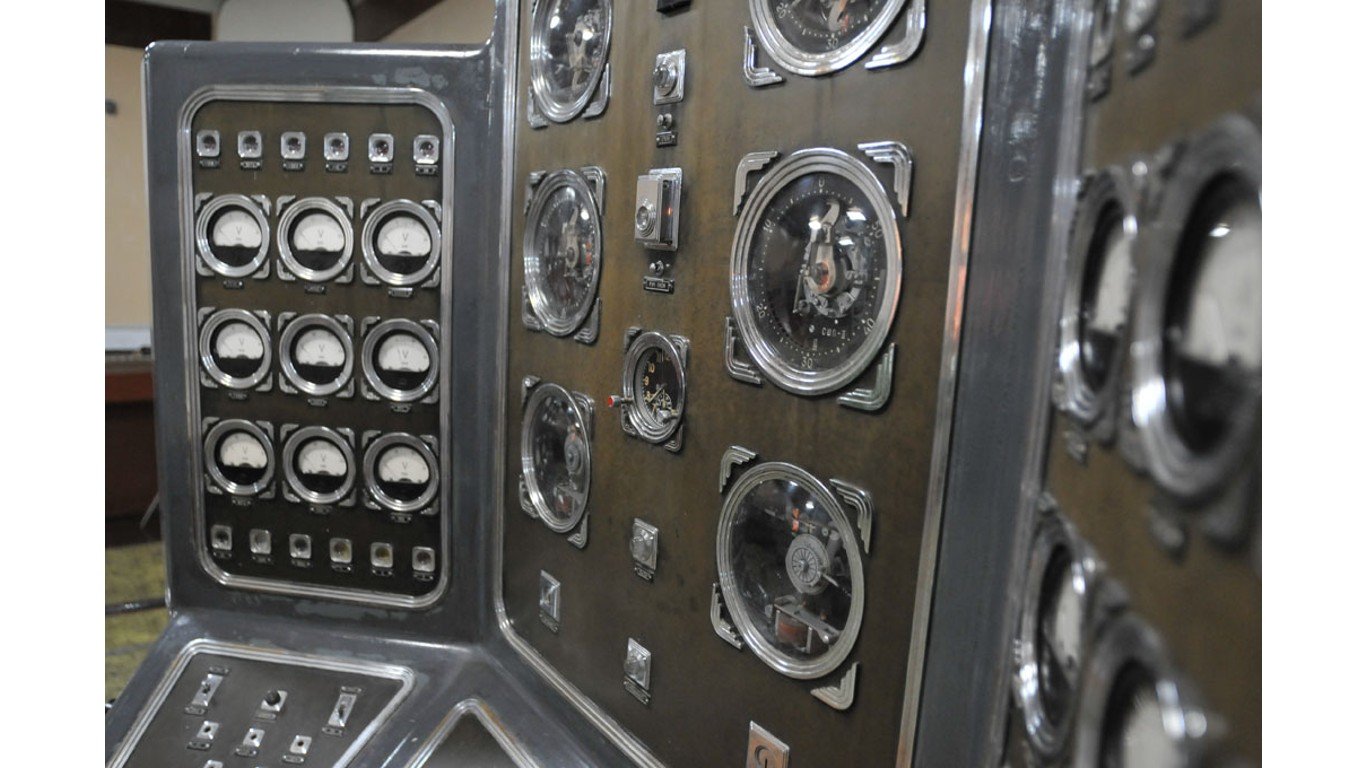
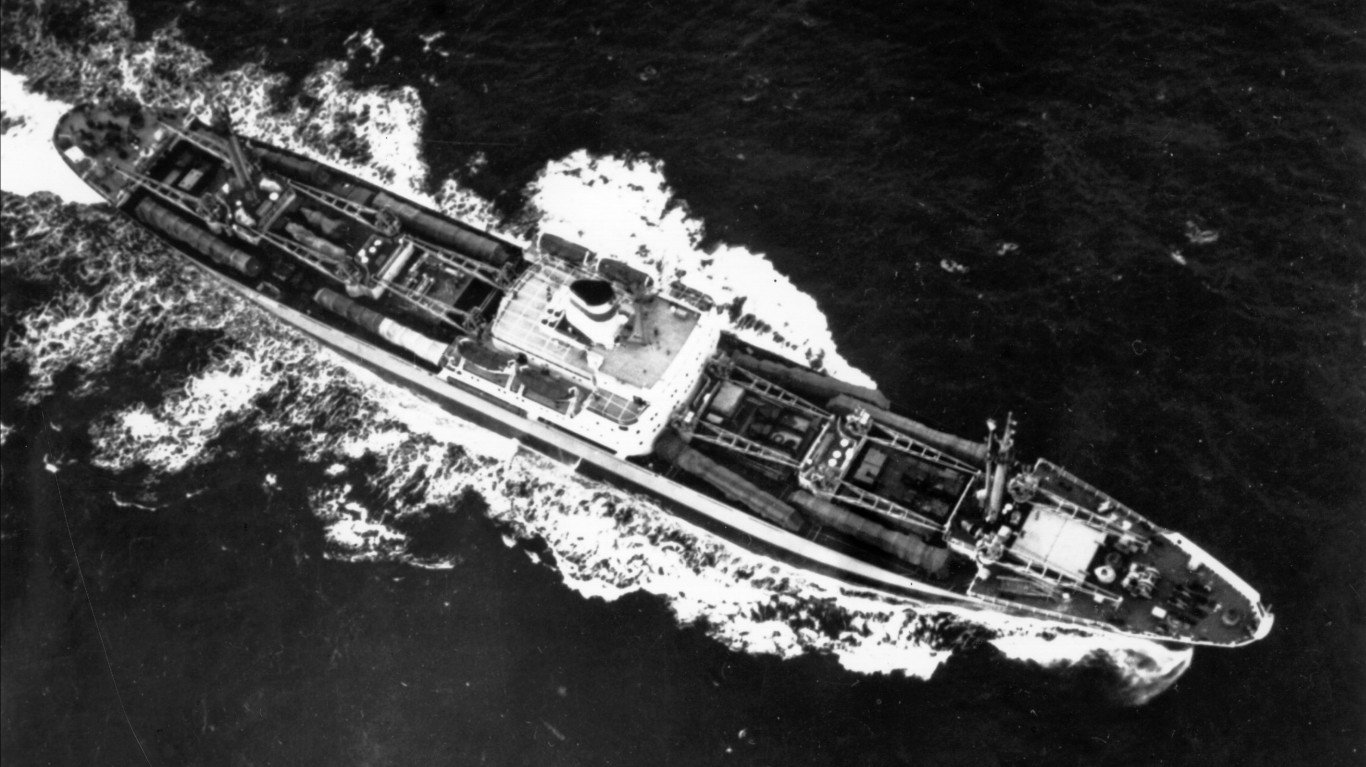 24/7 Wall St.
24/7 Wall St.